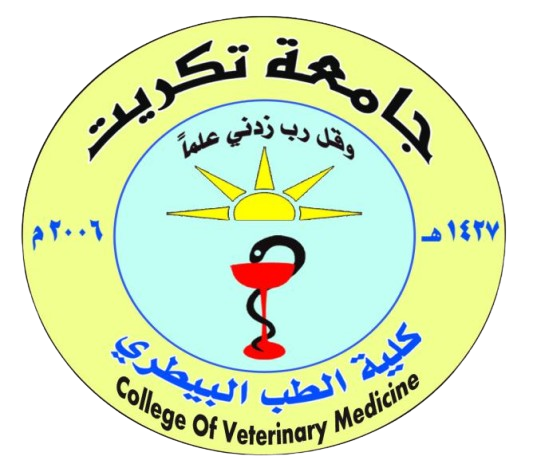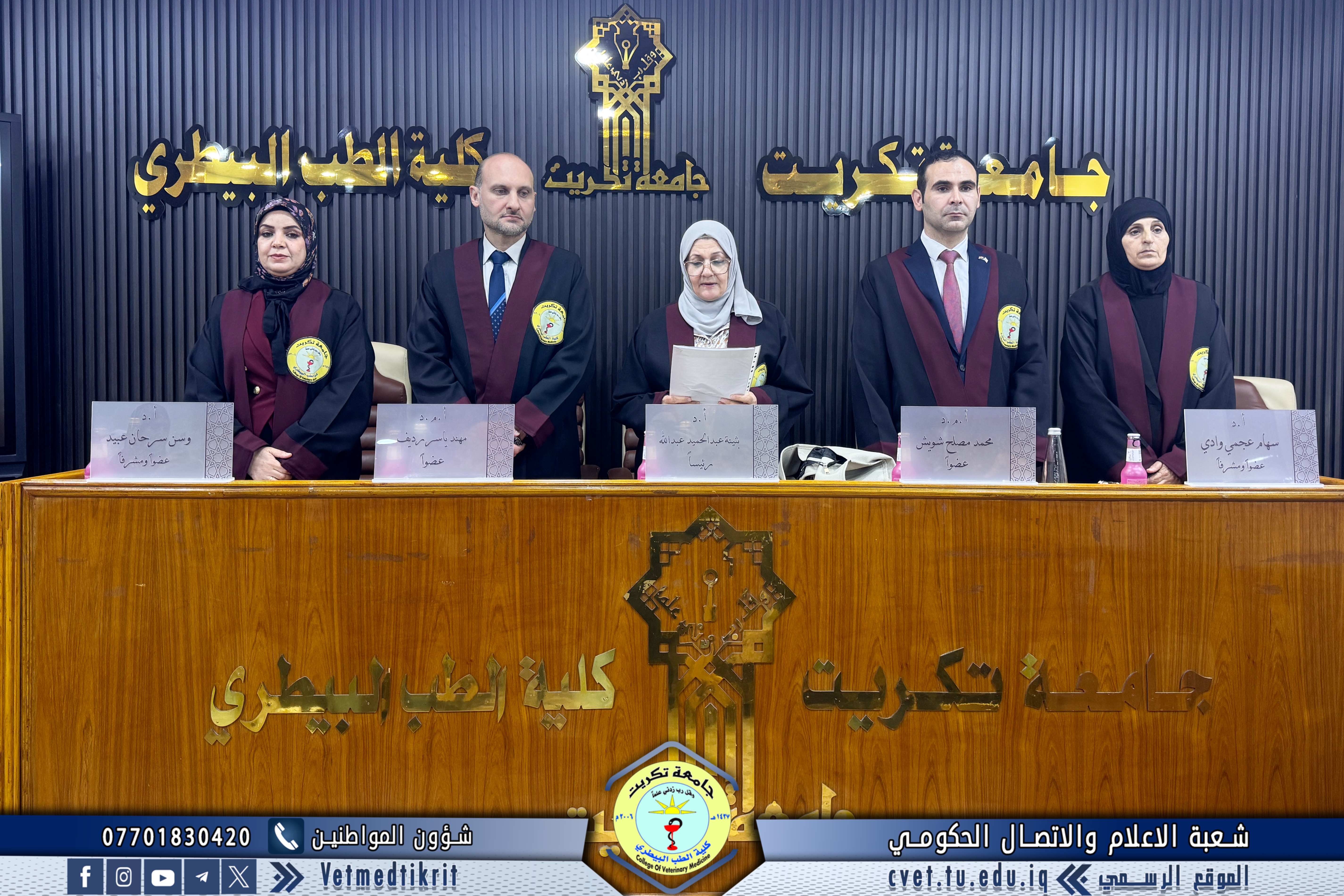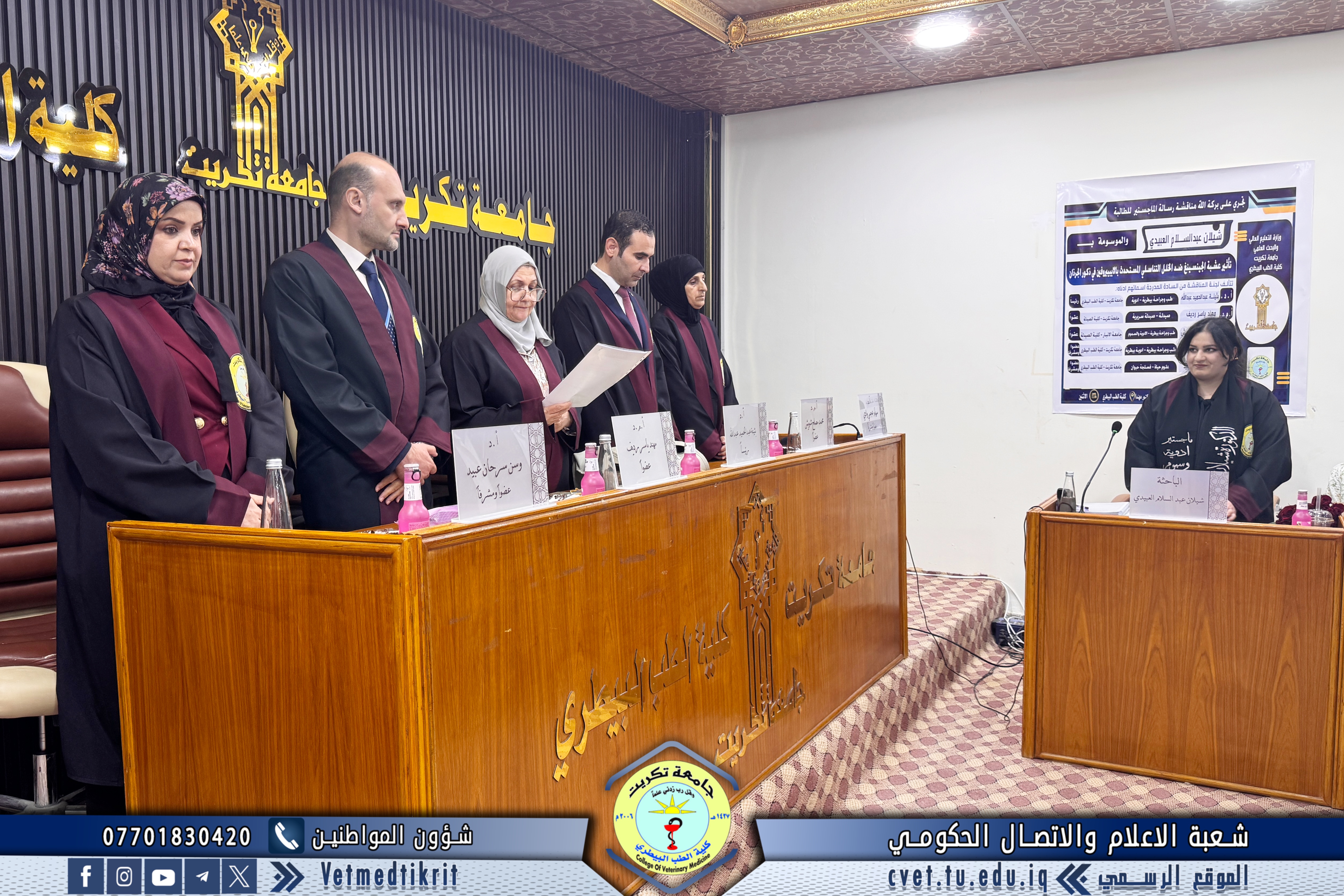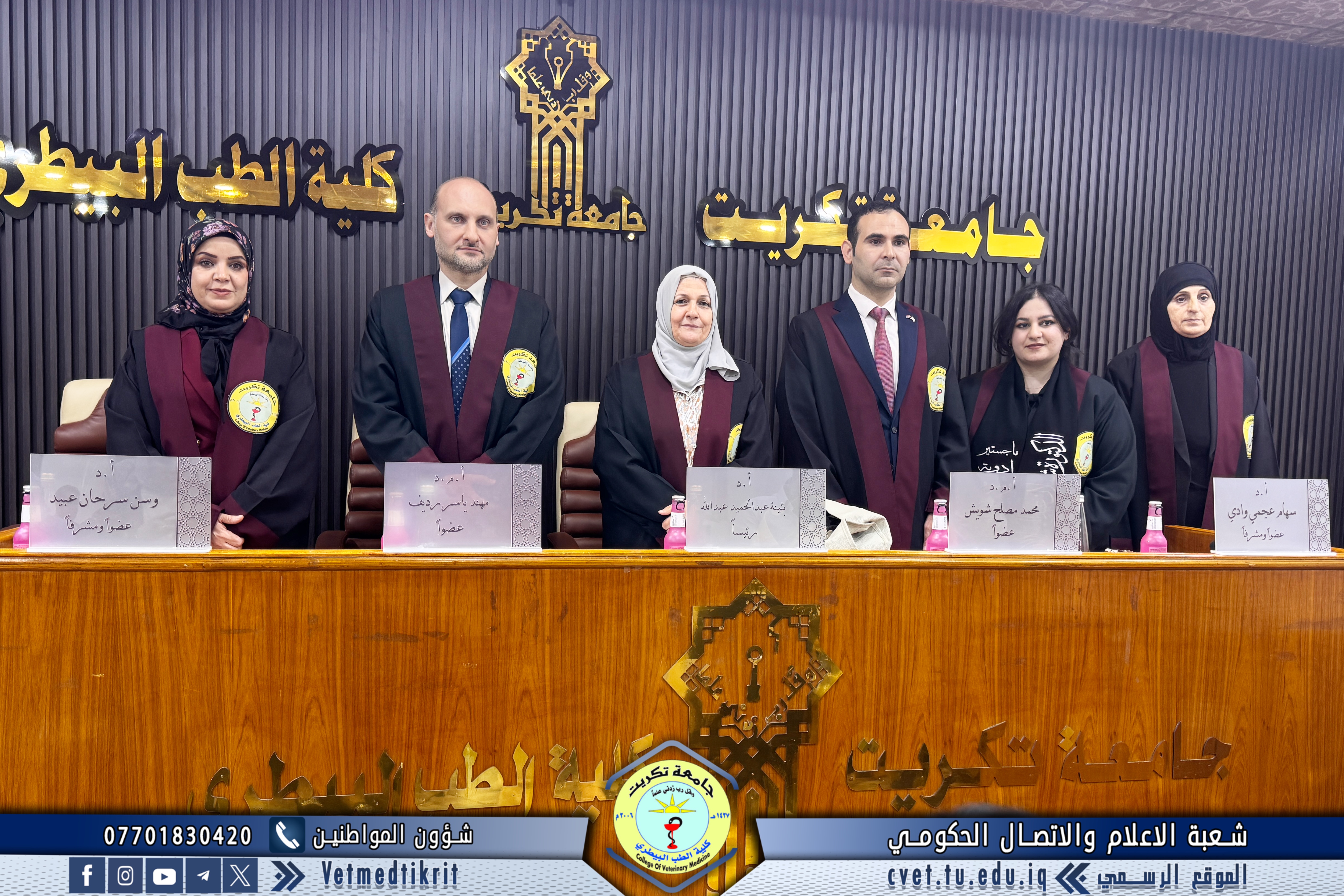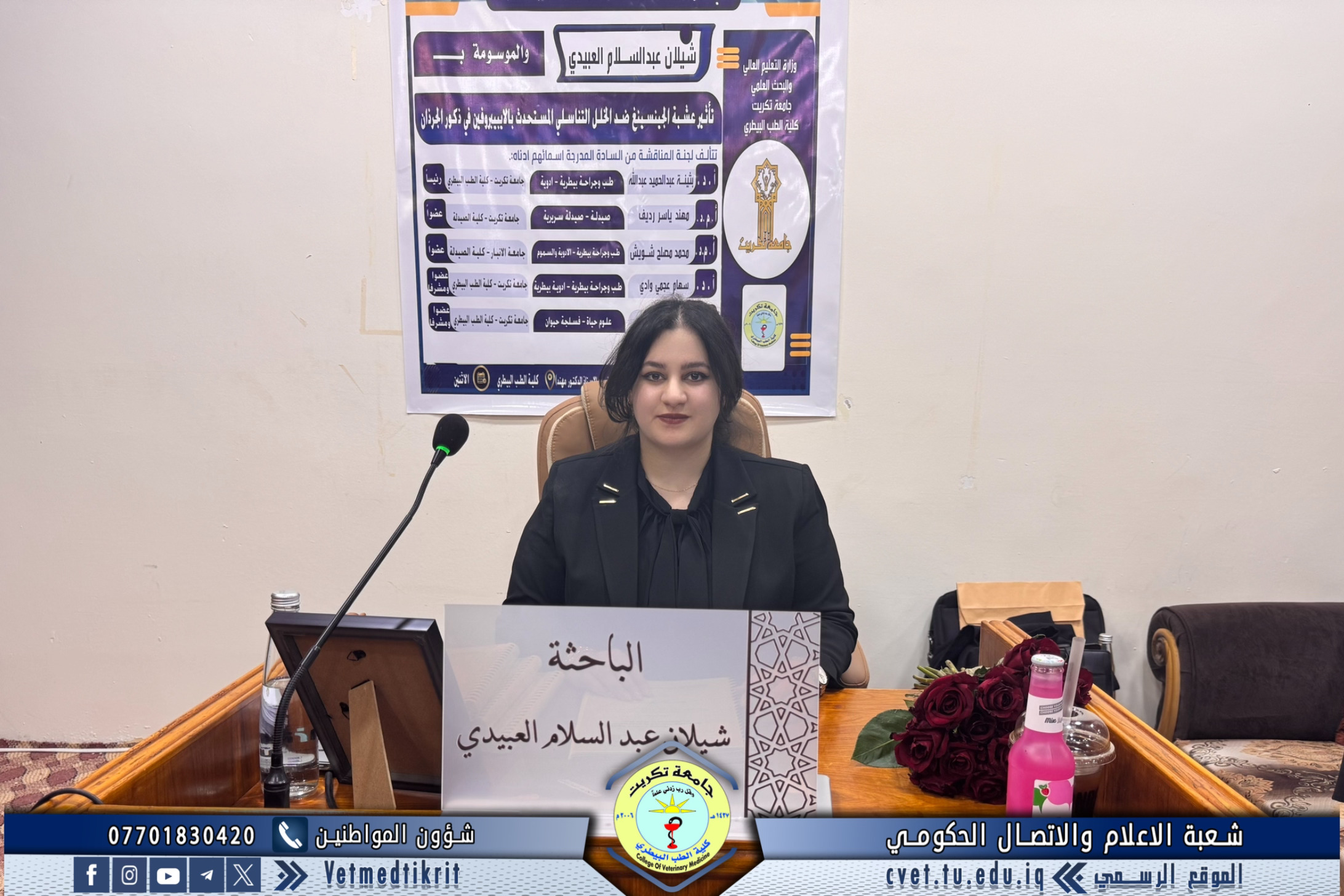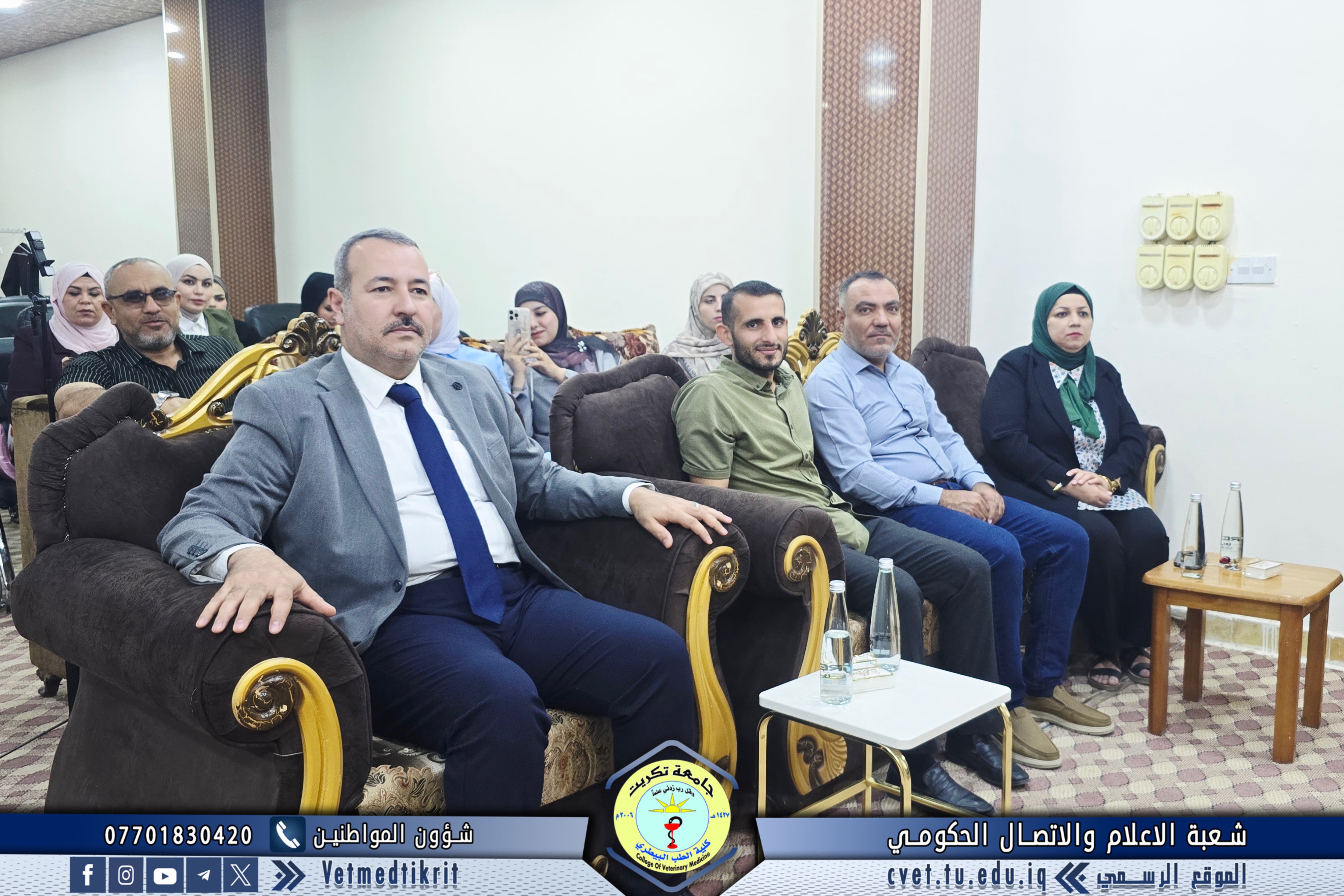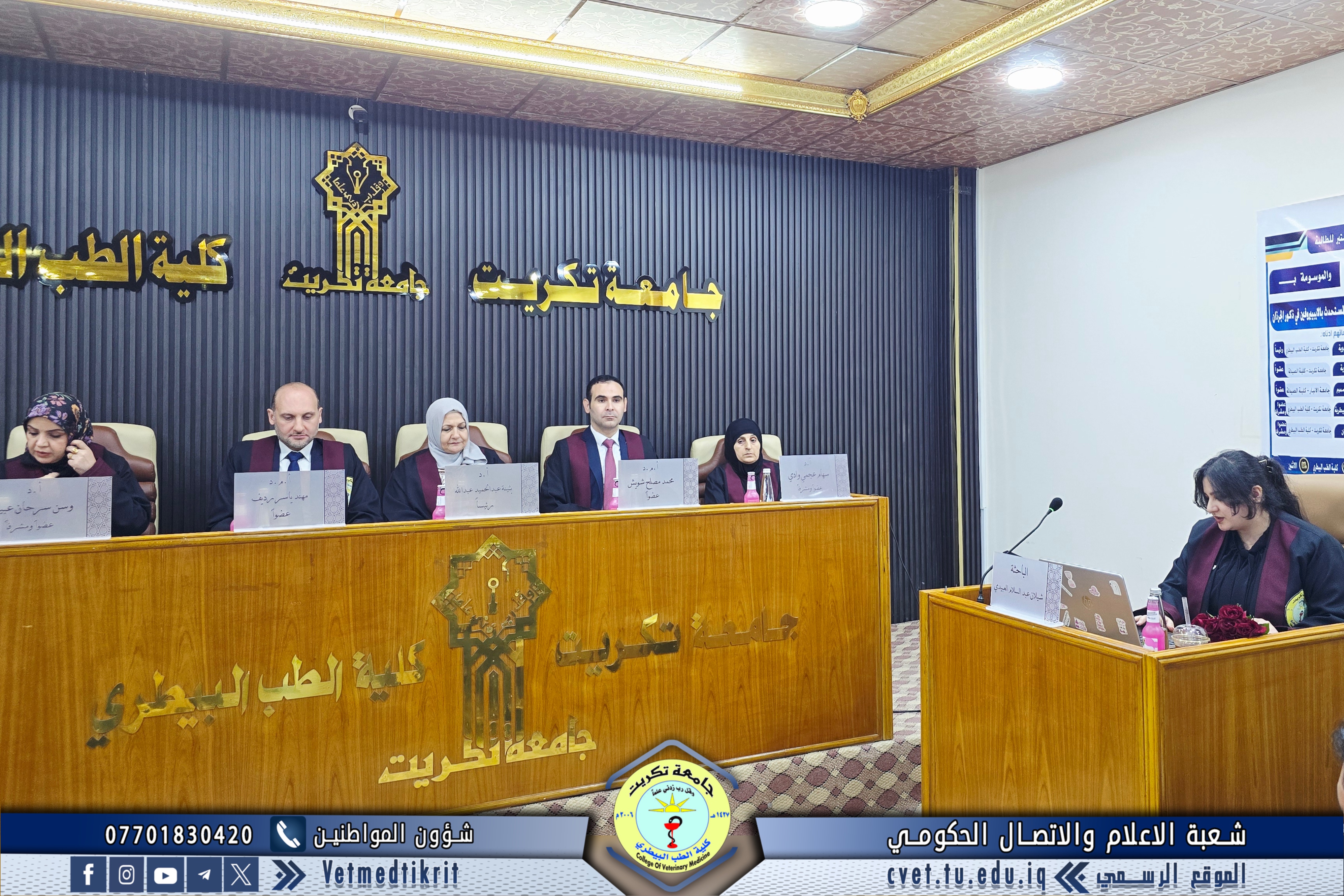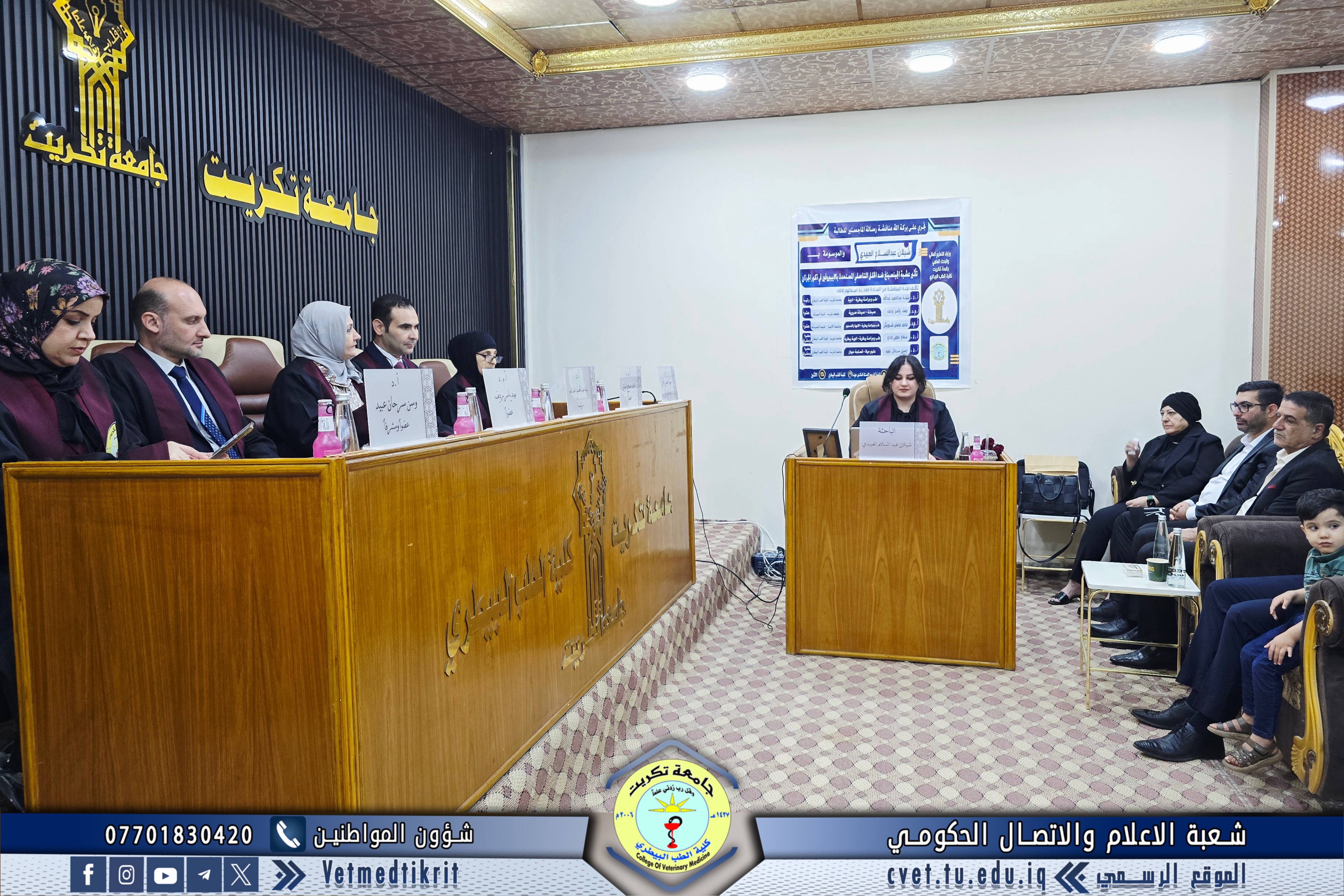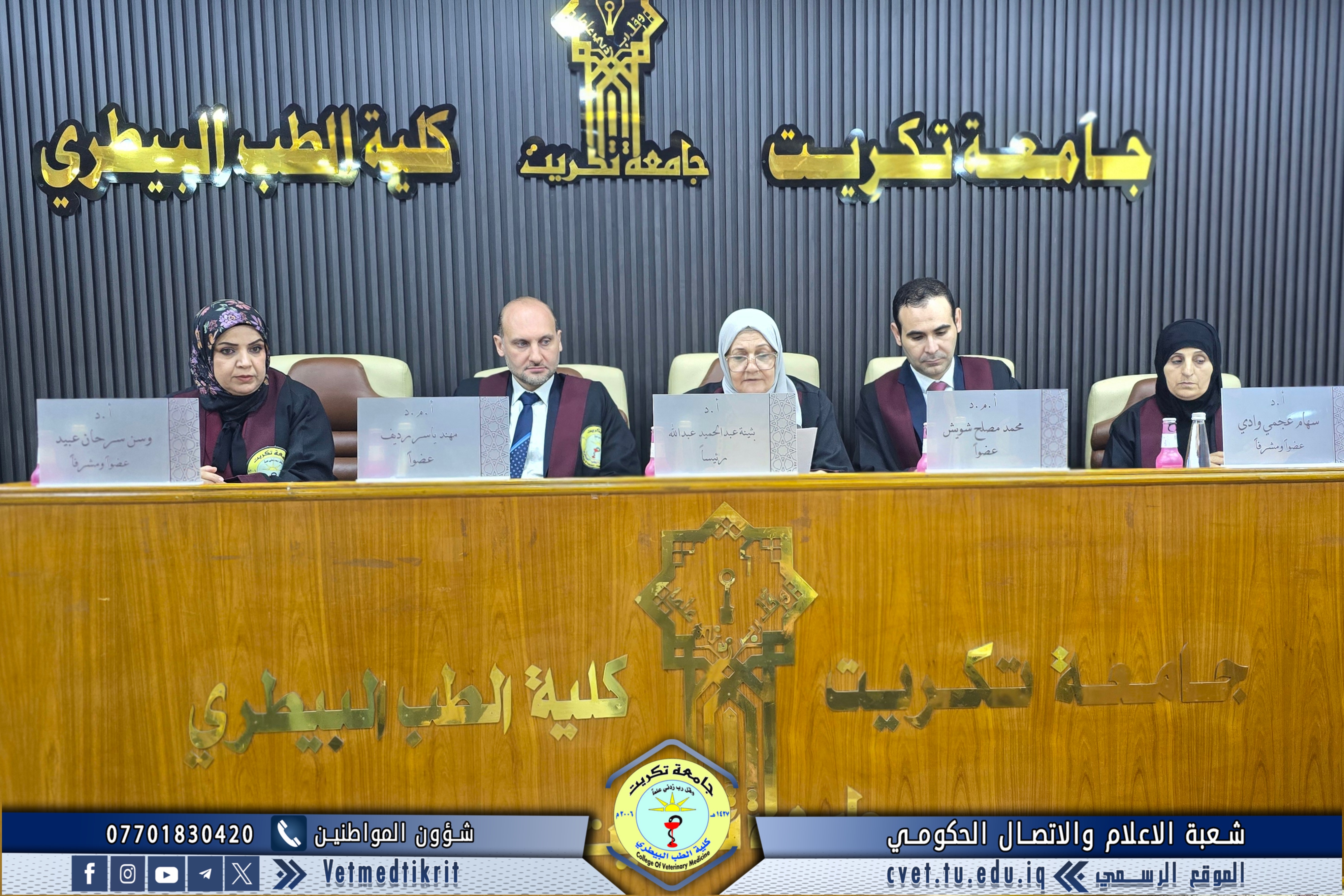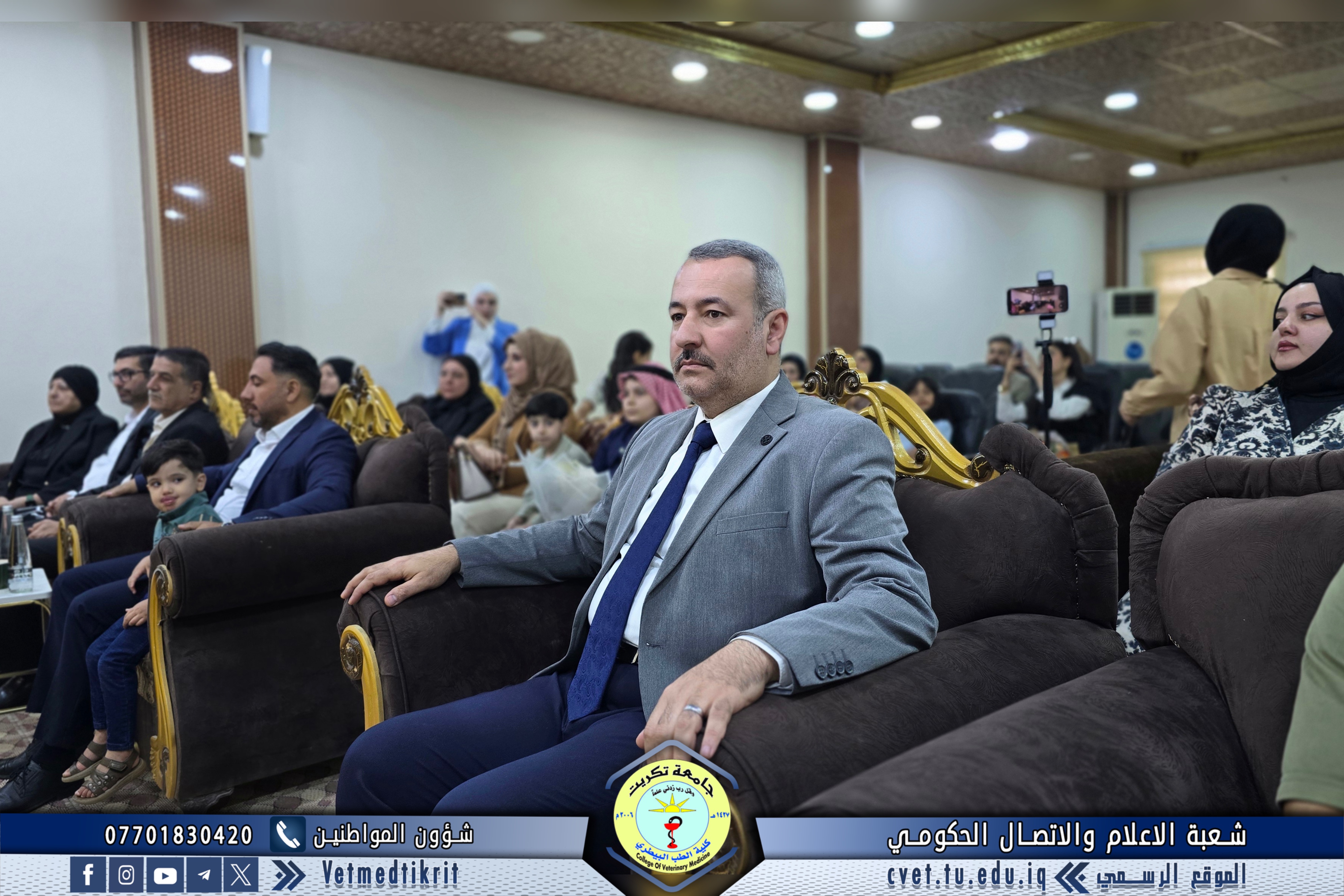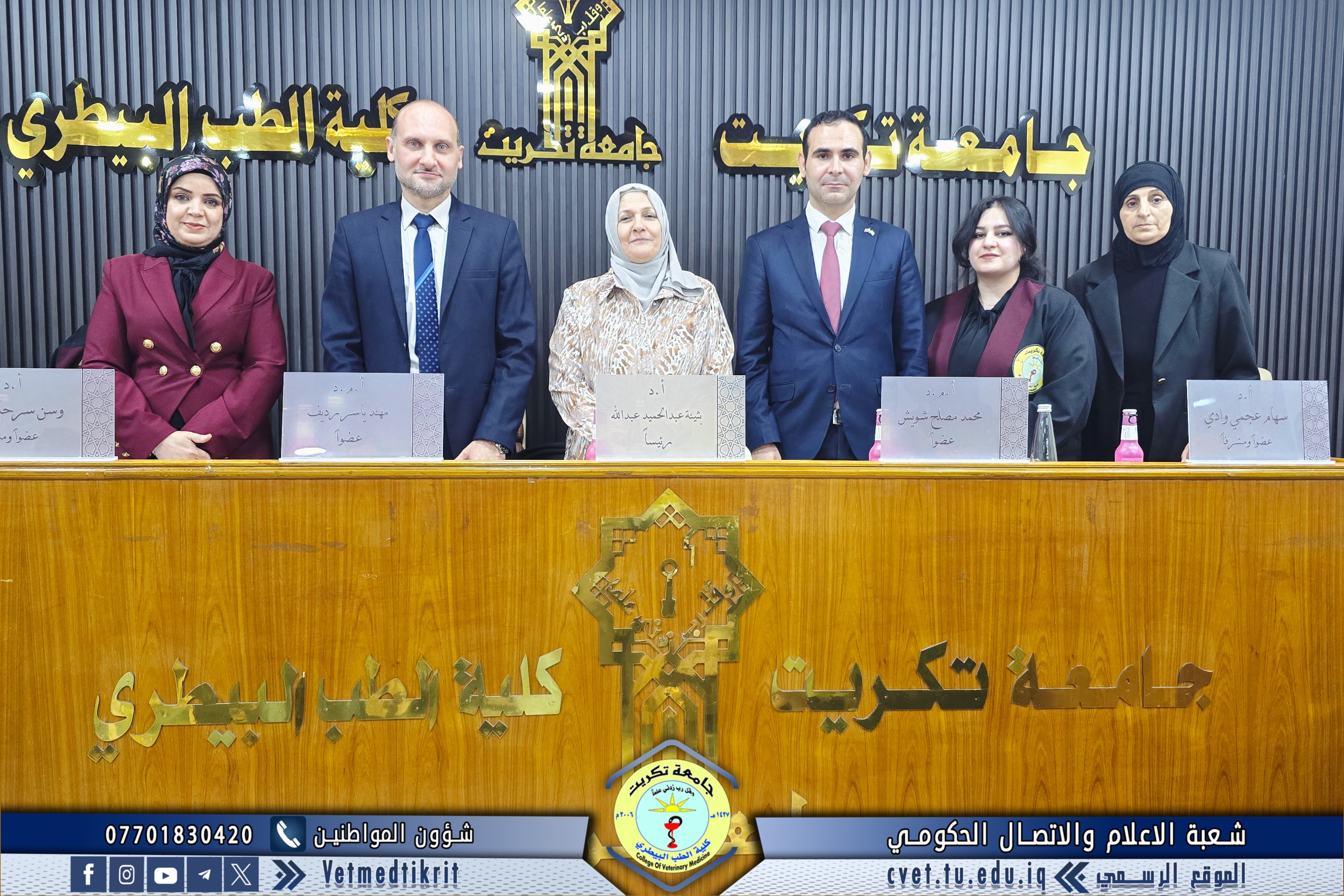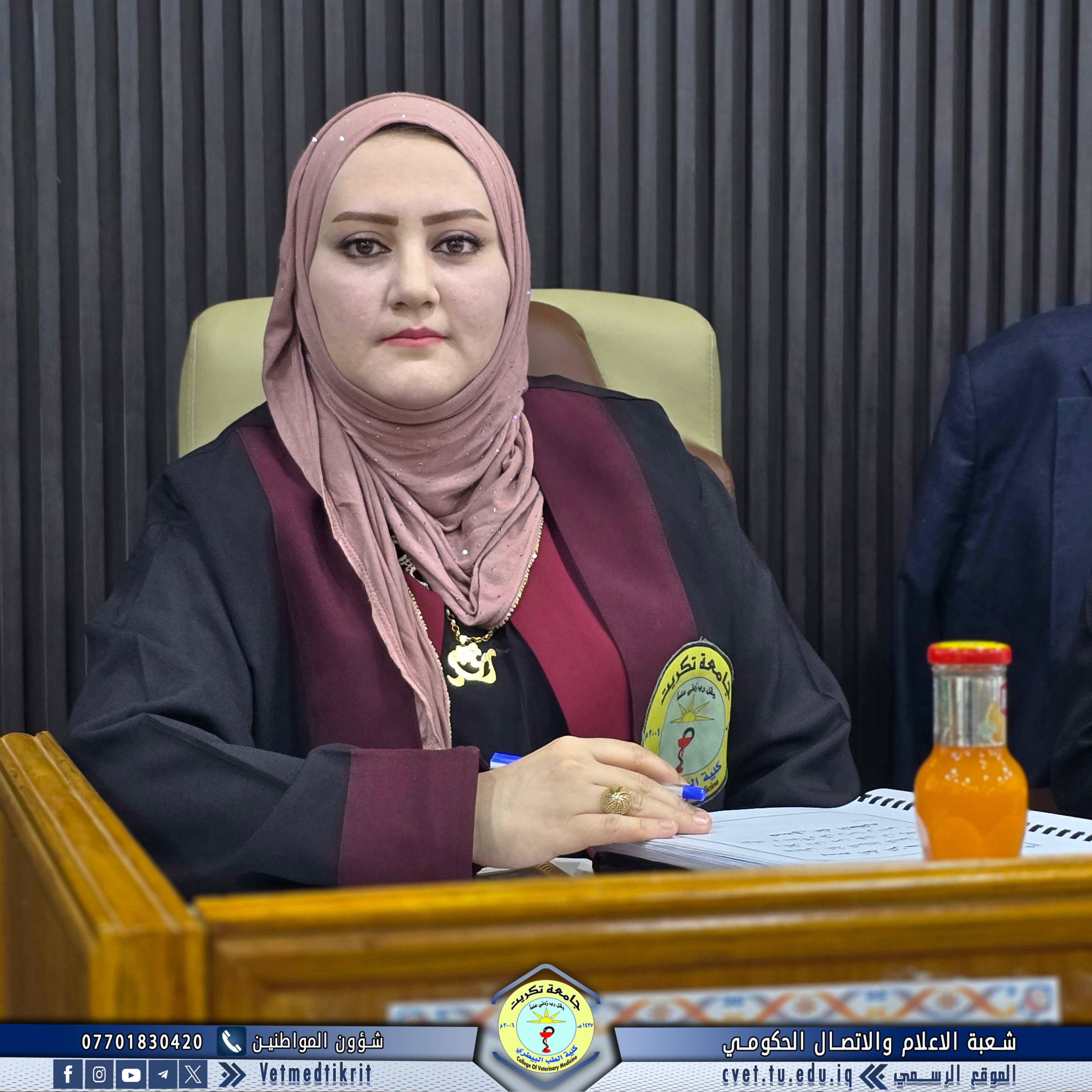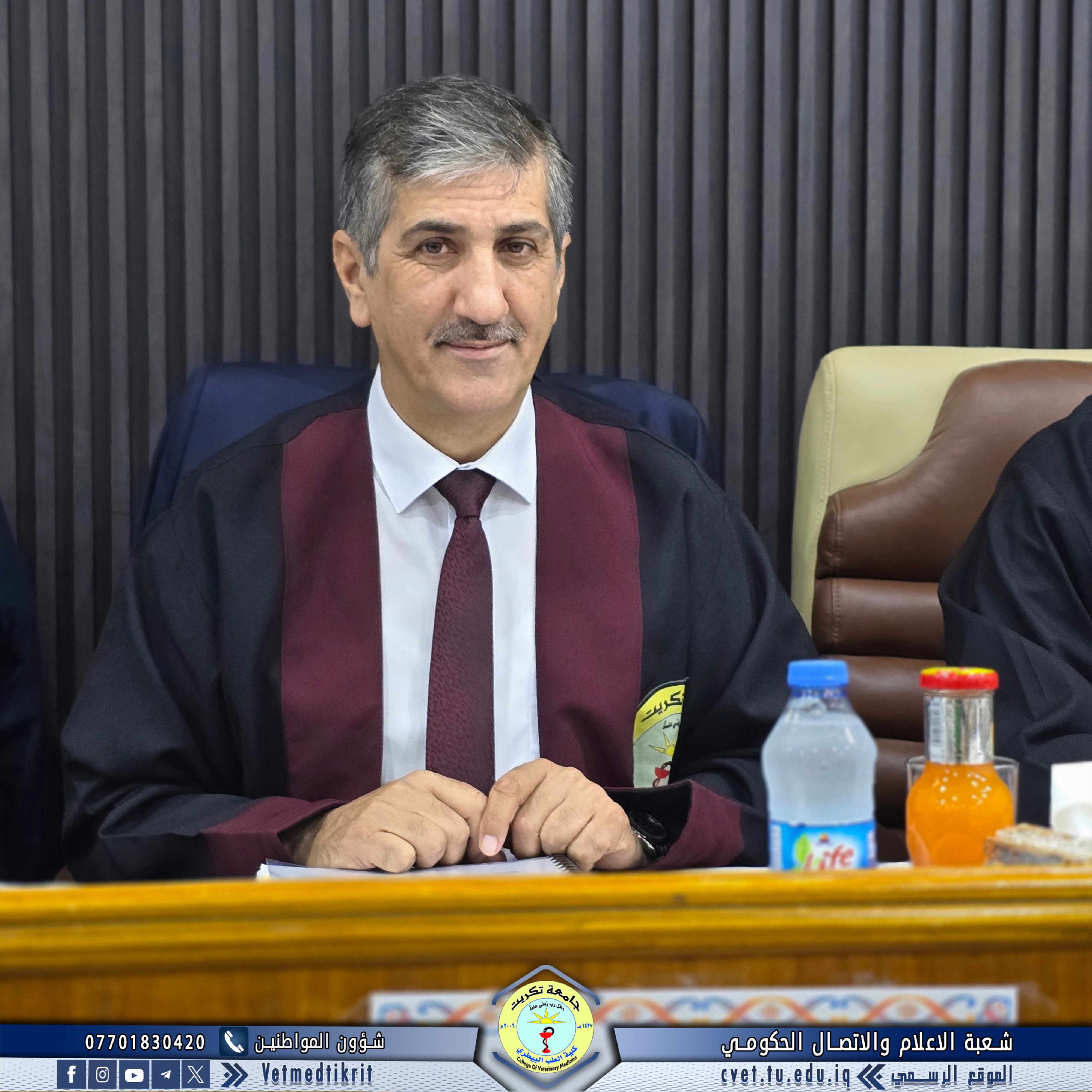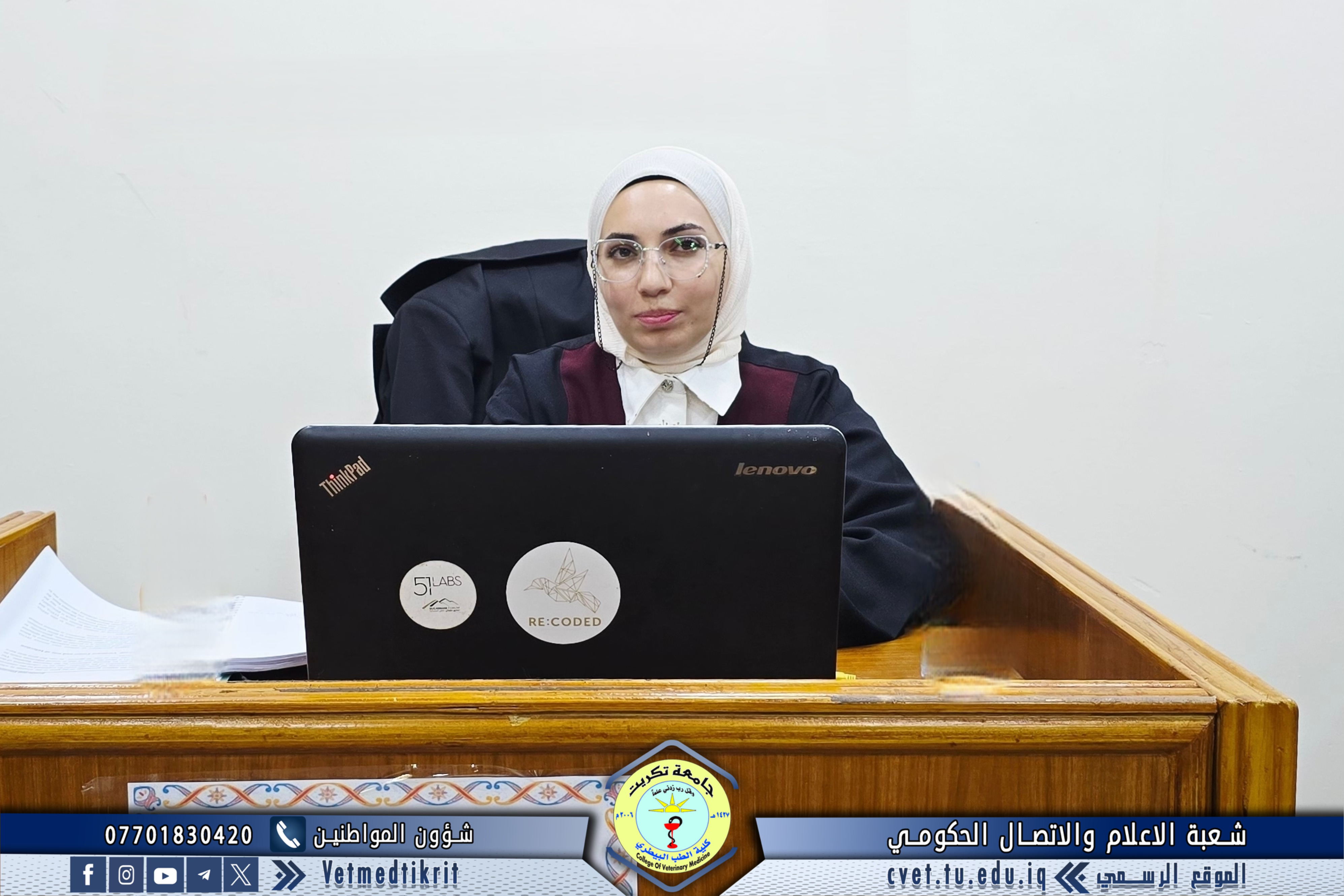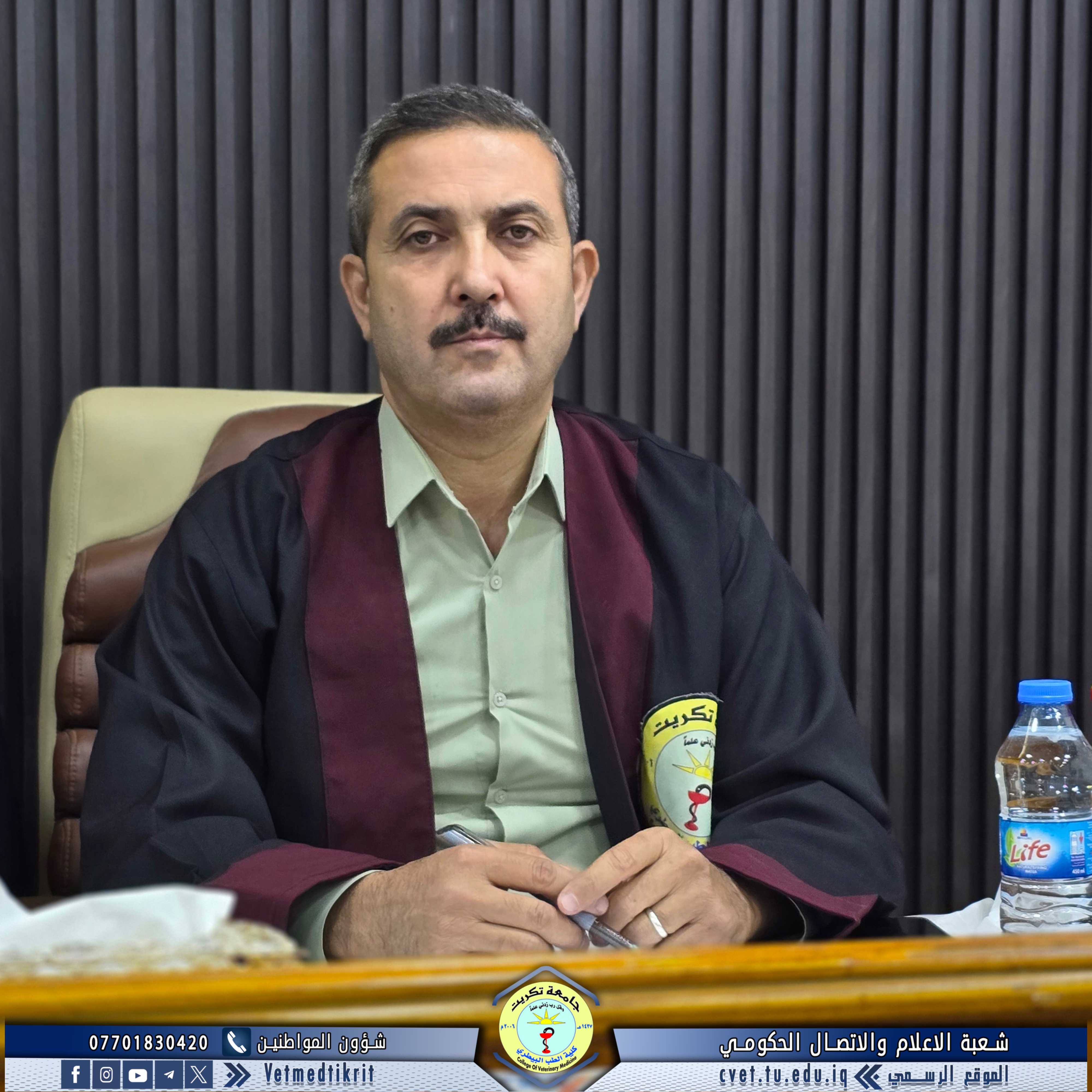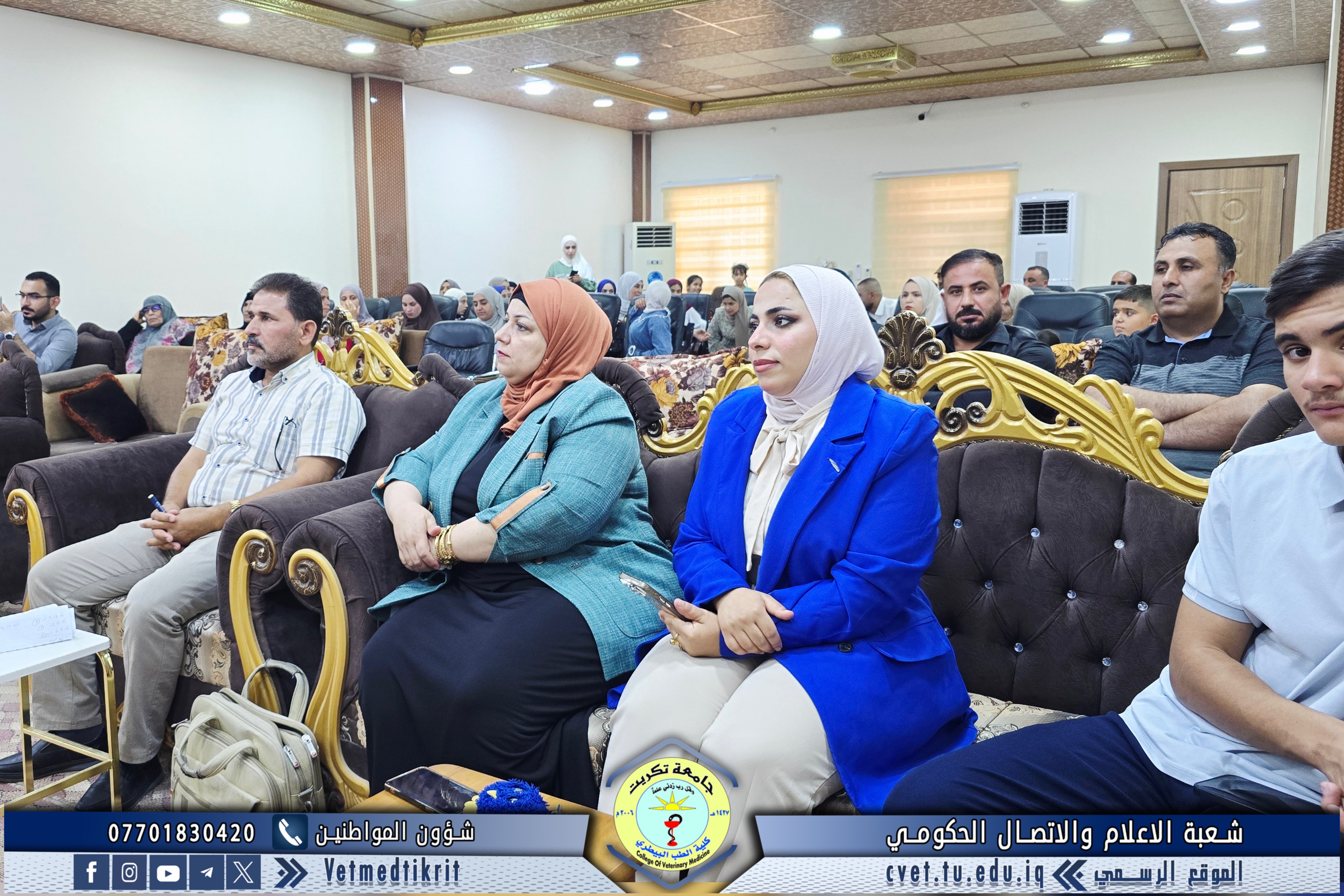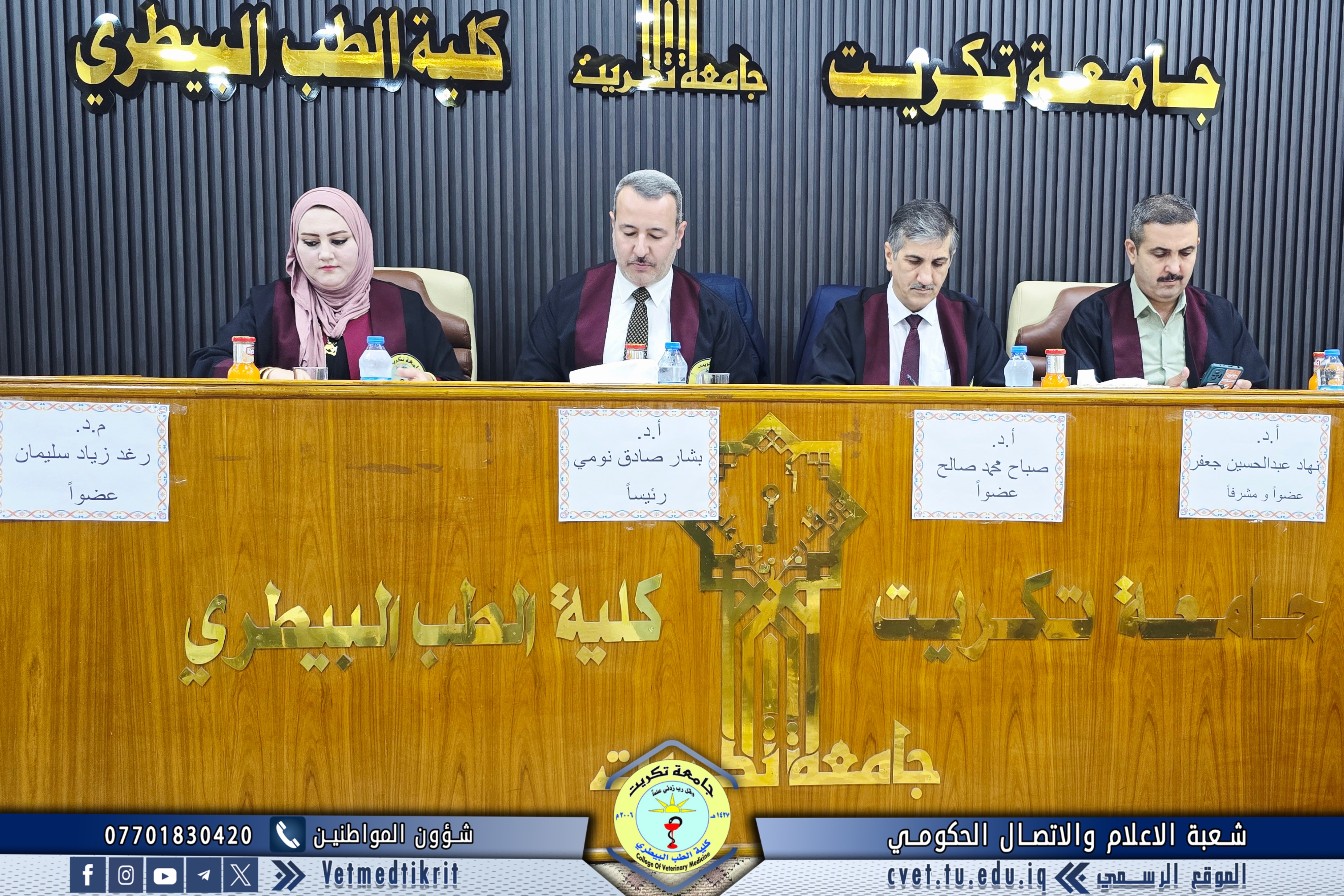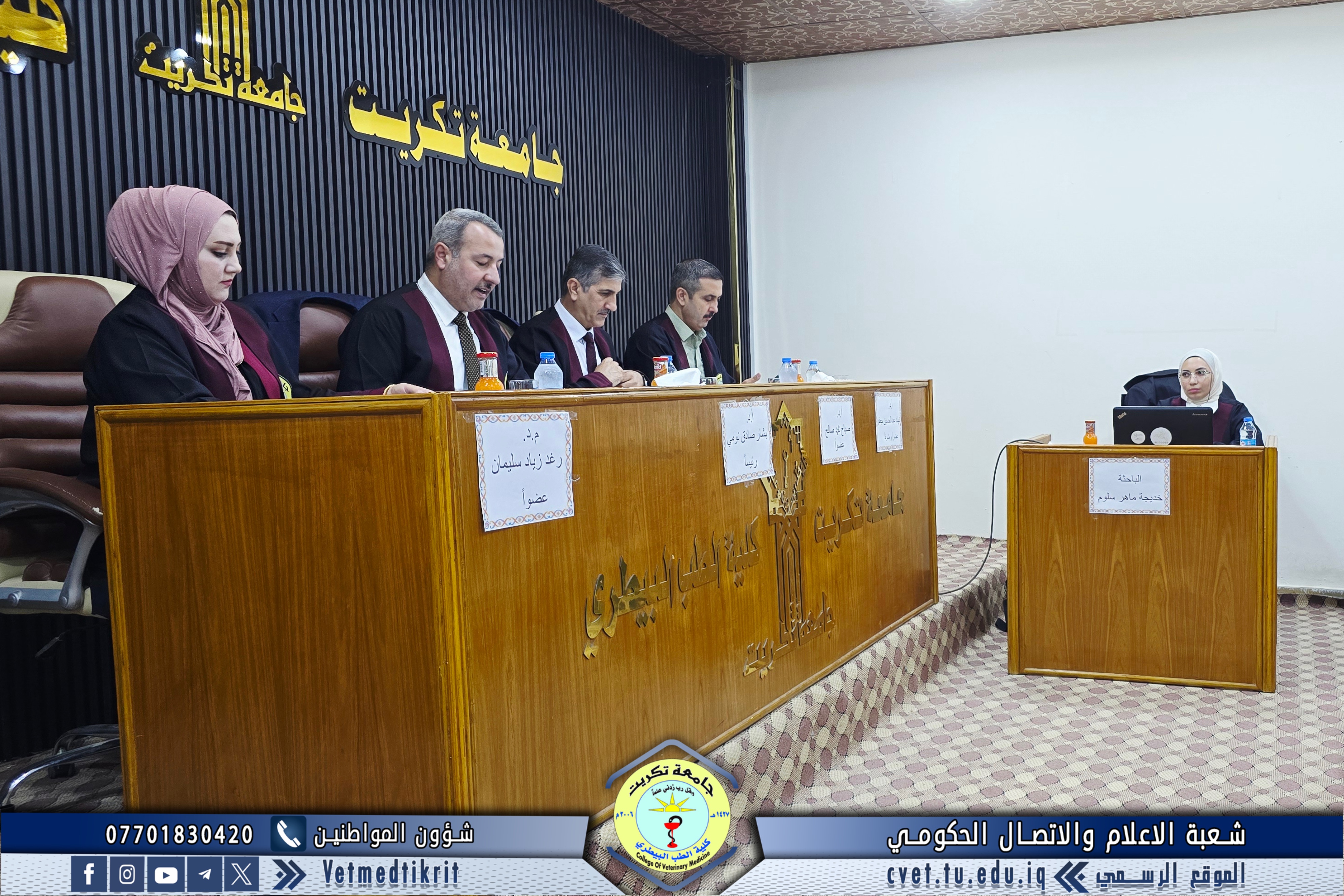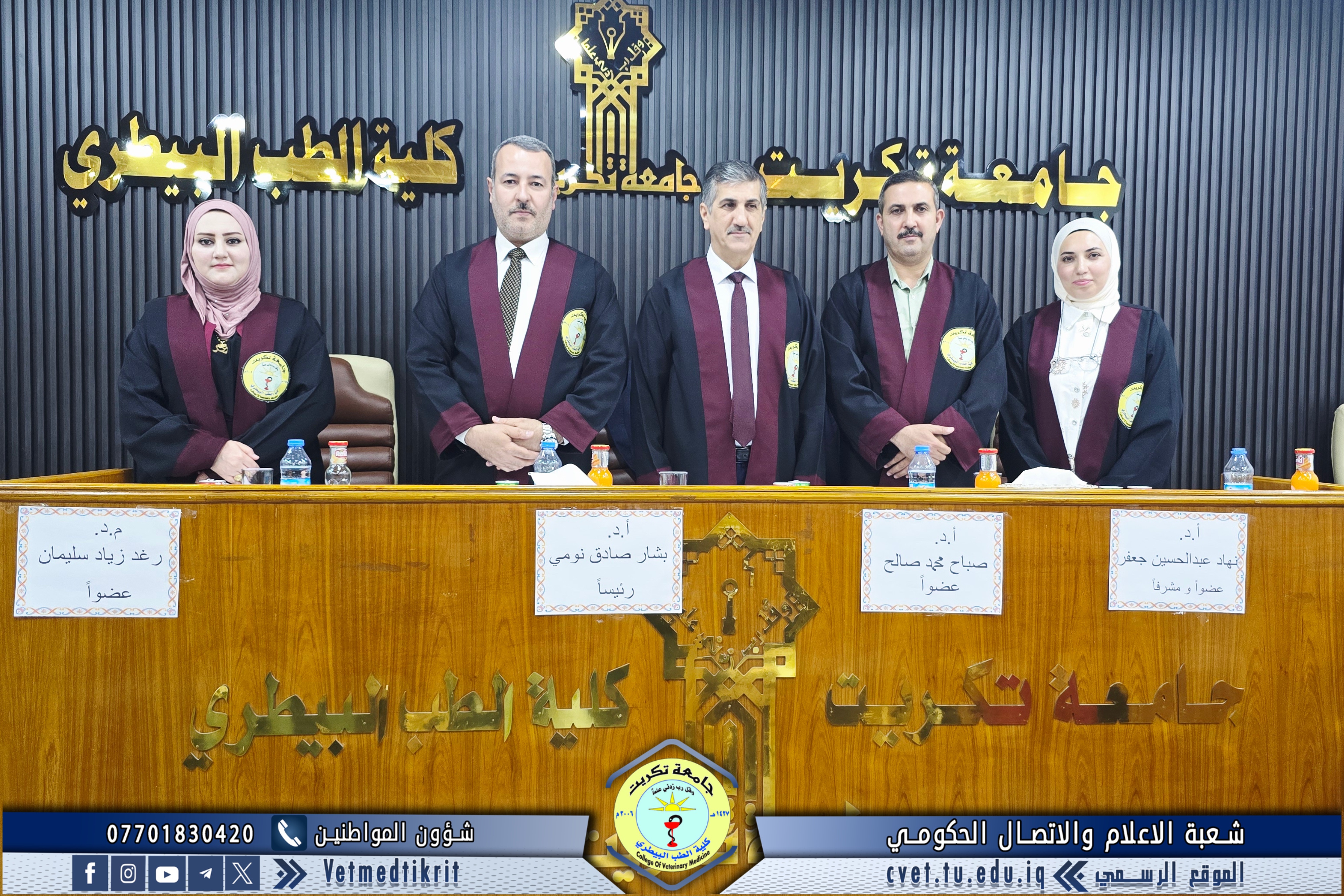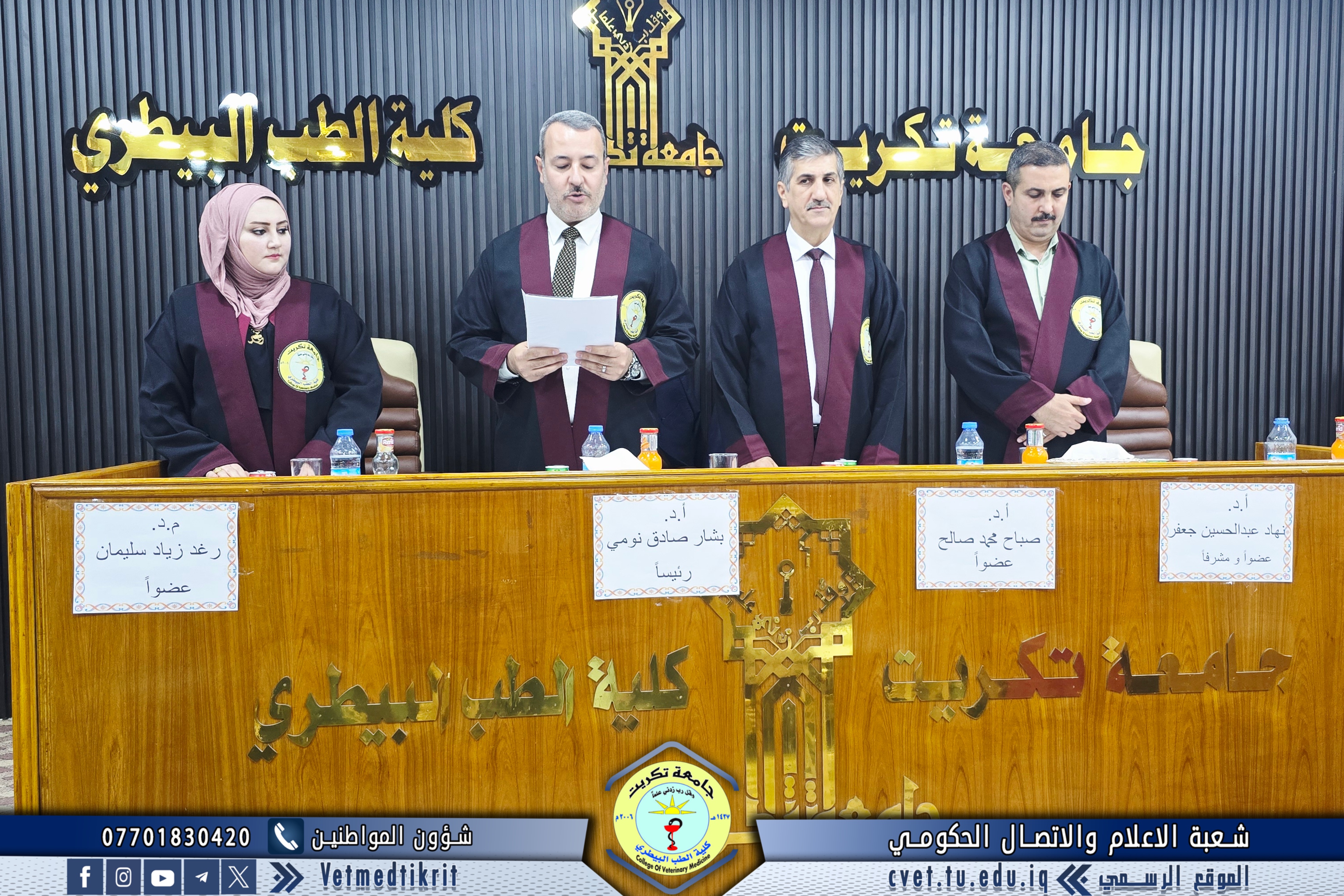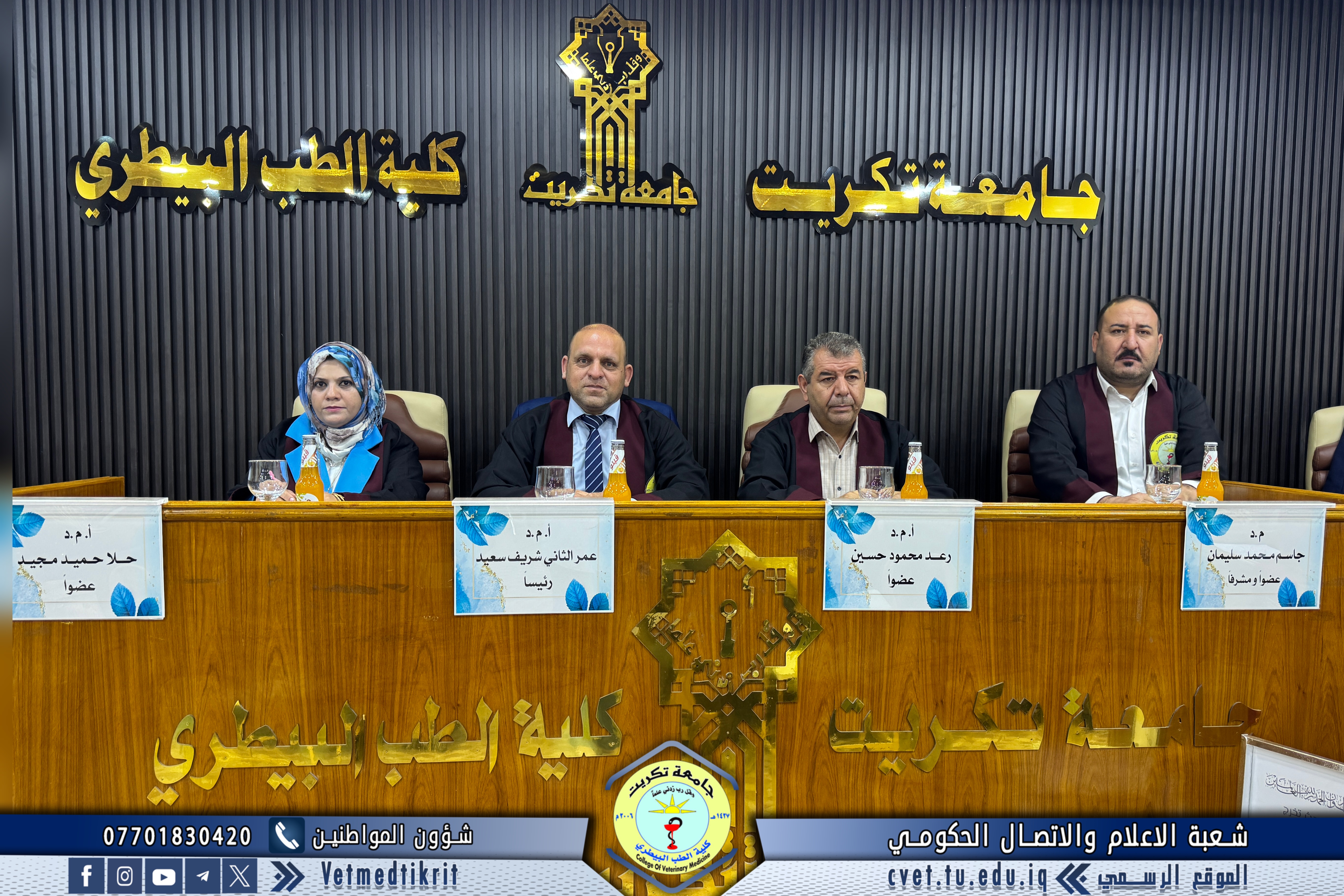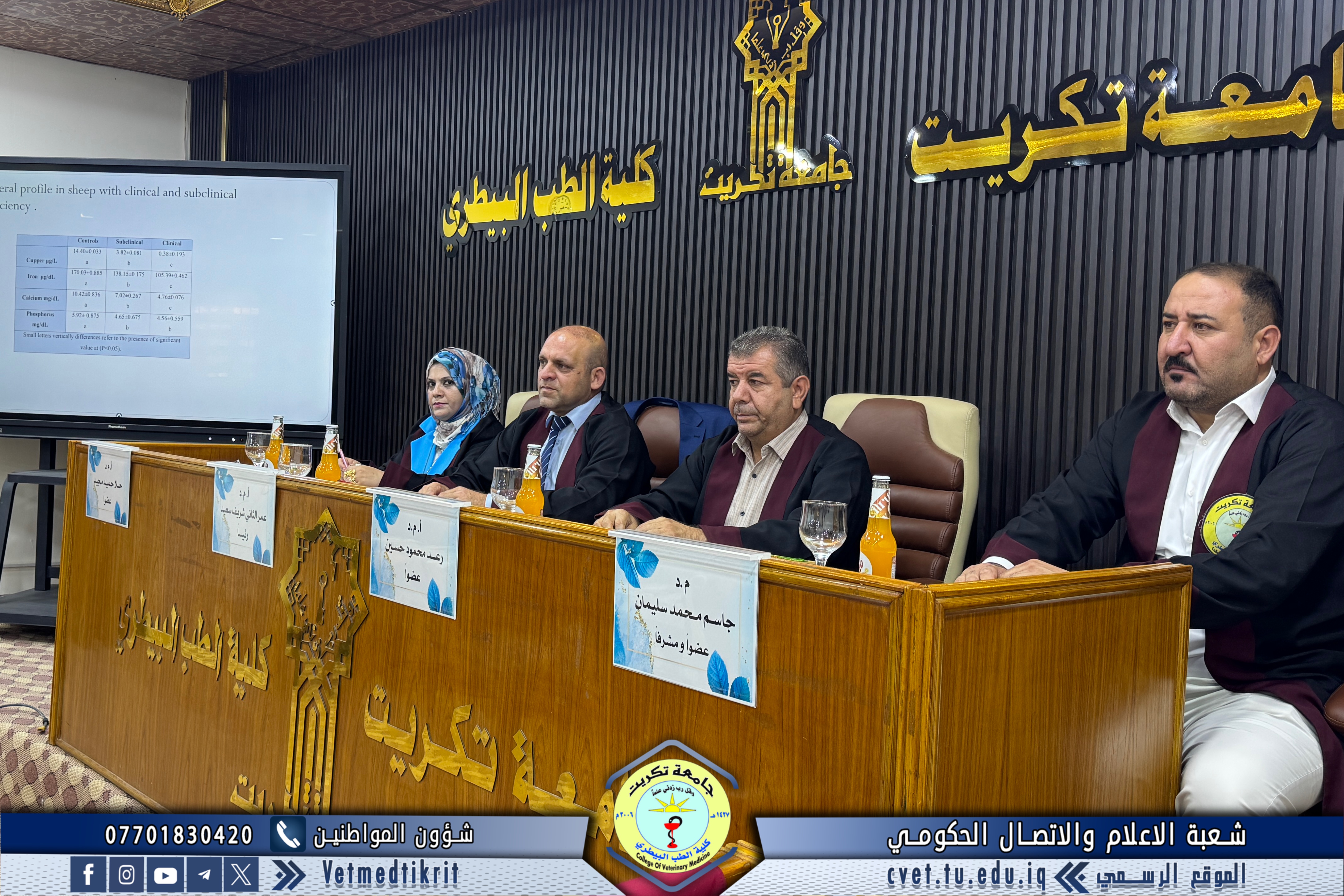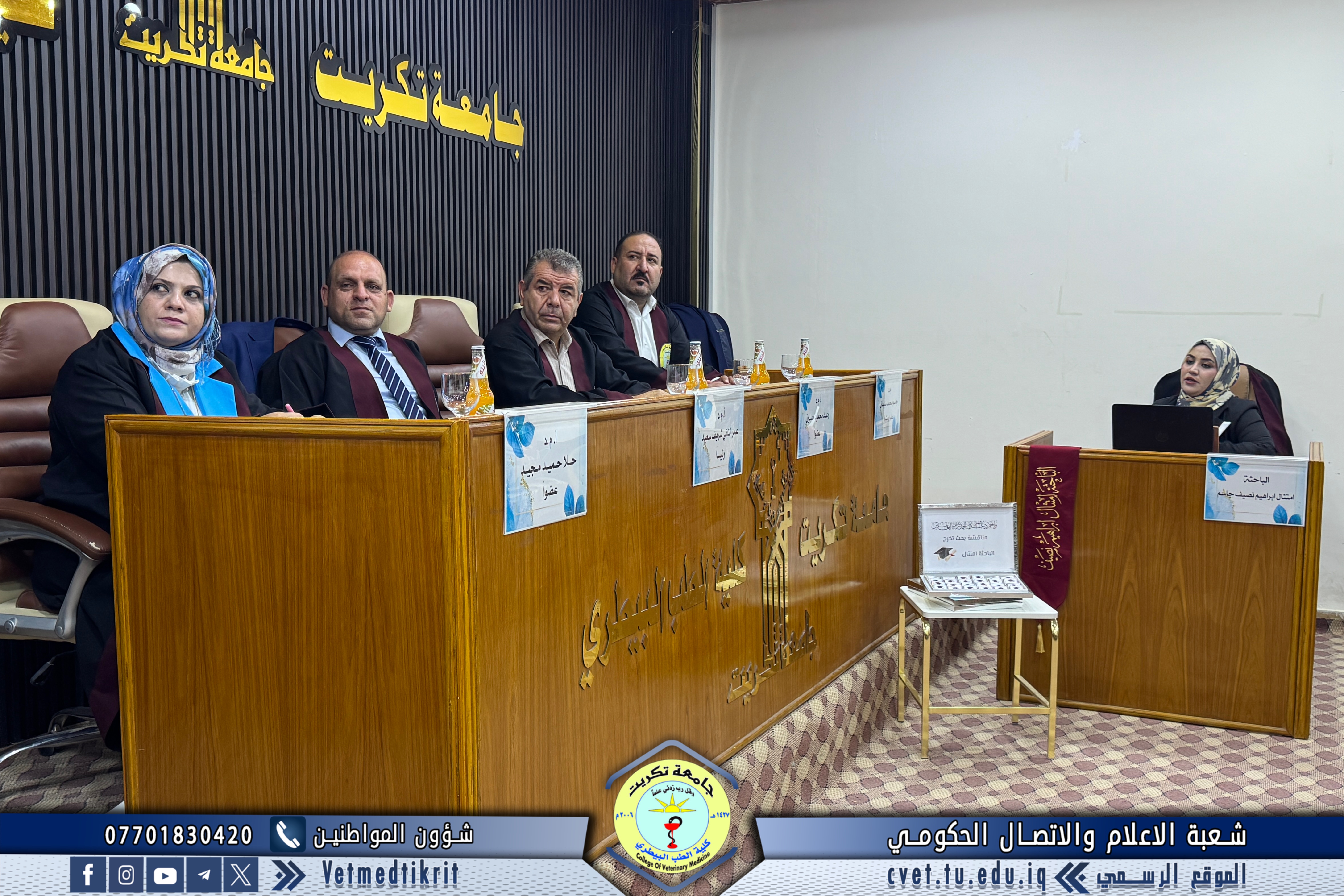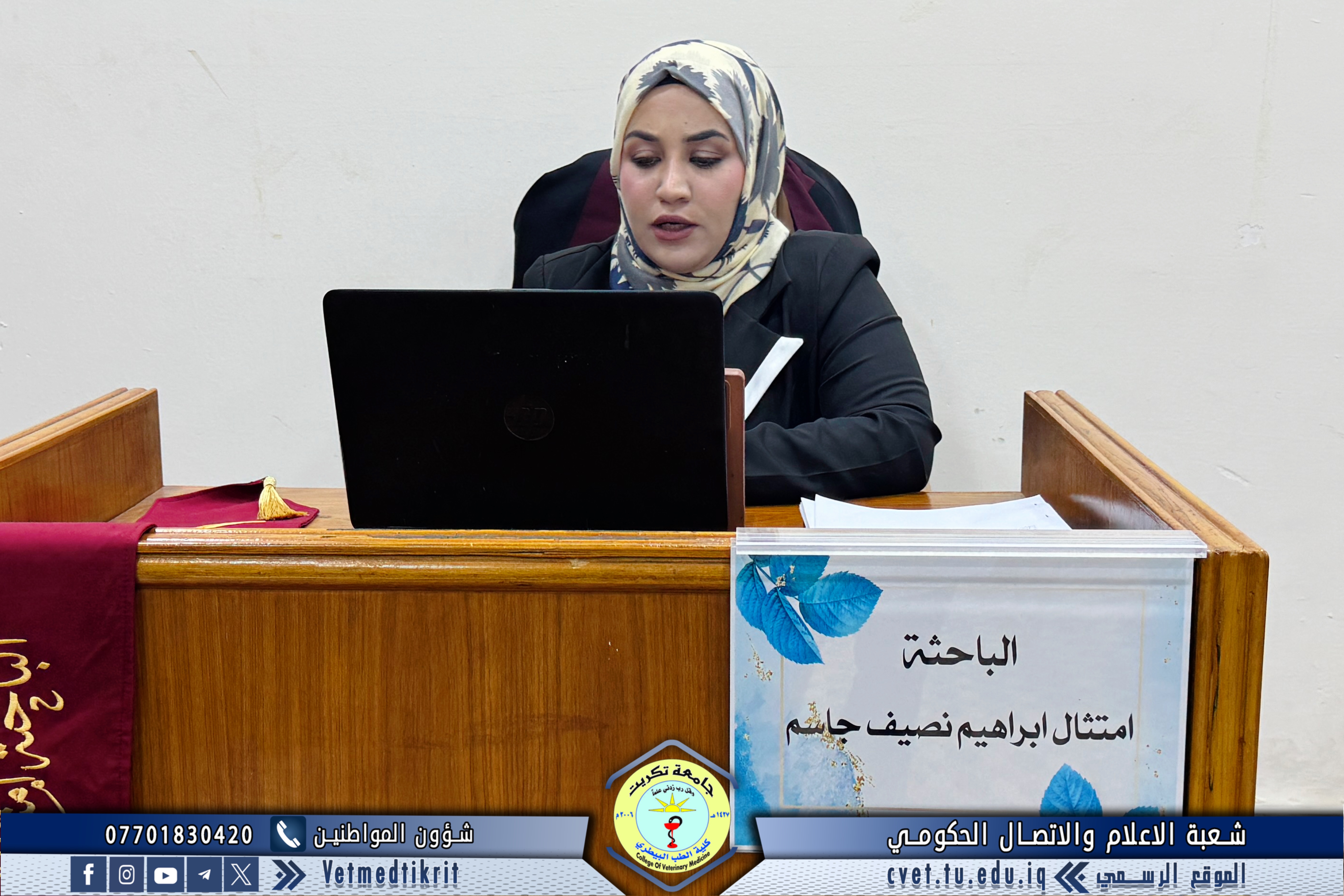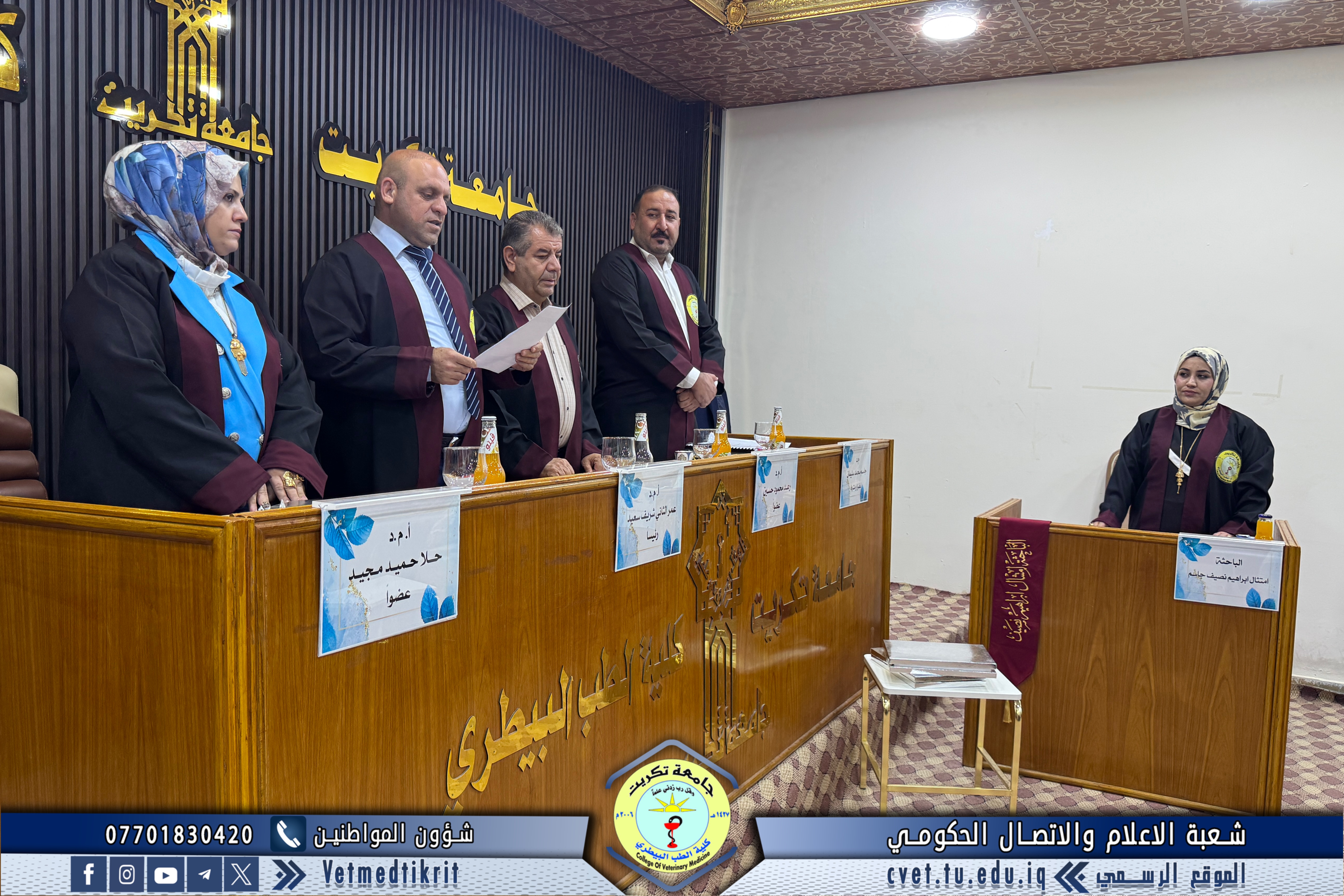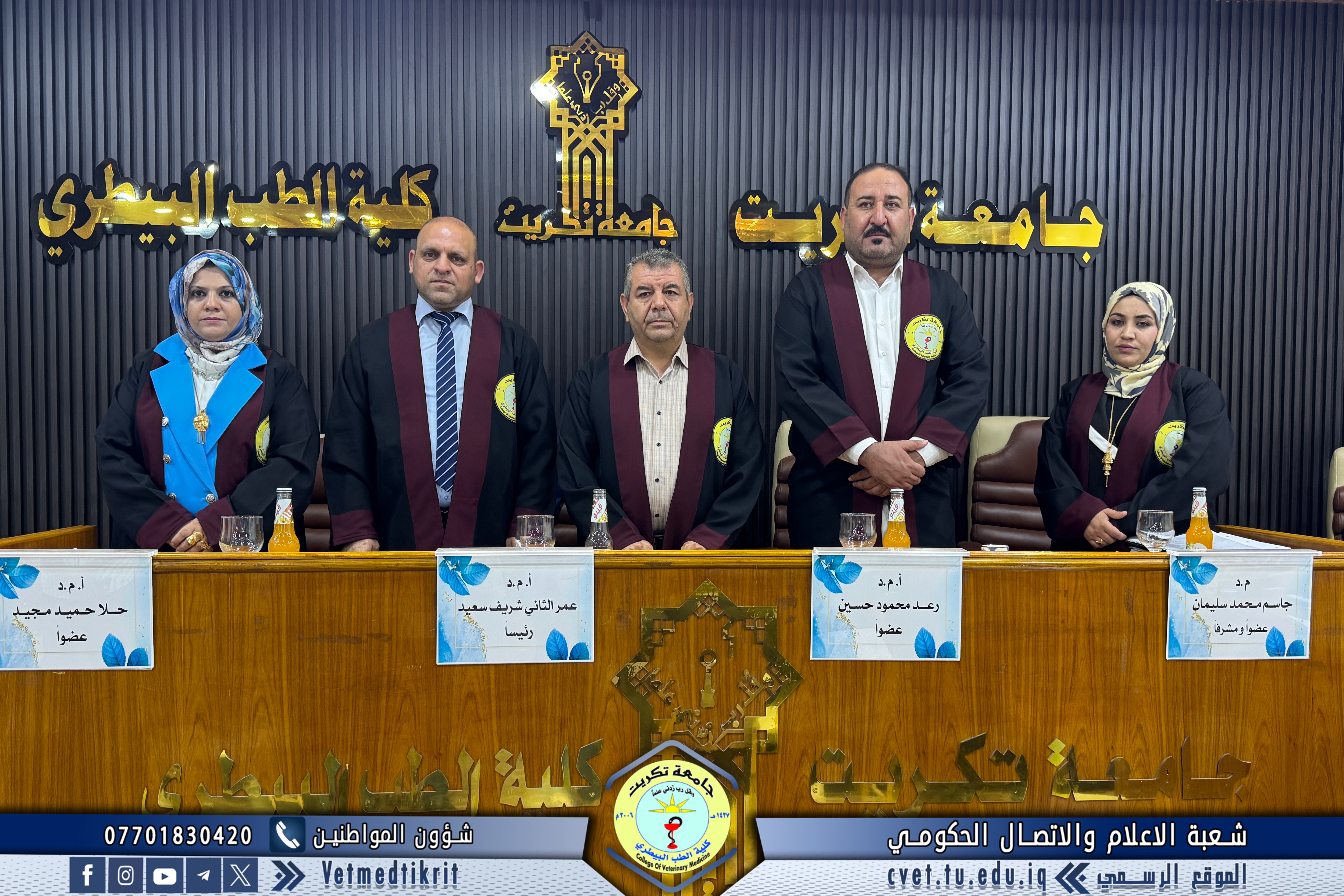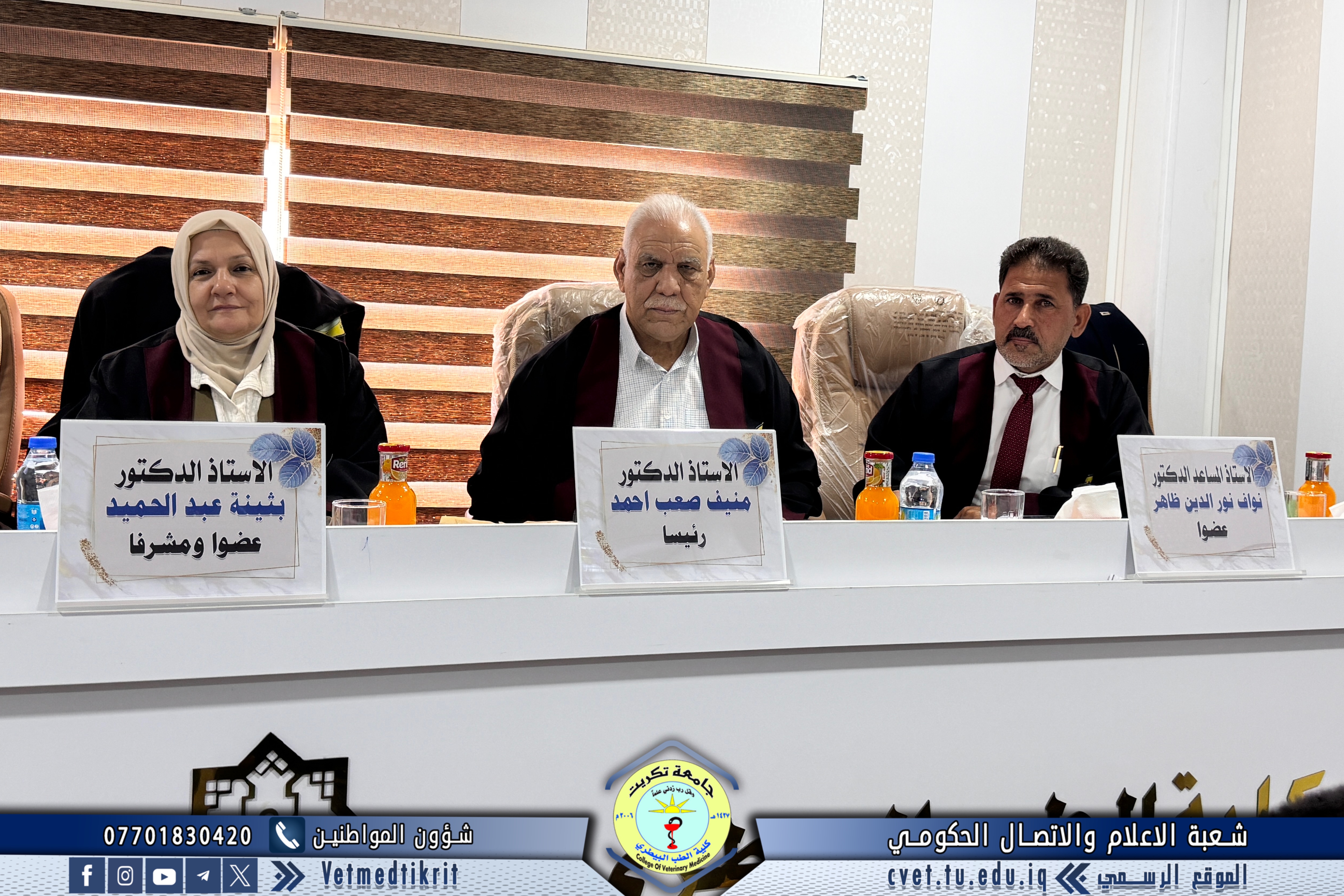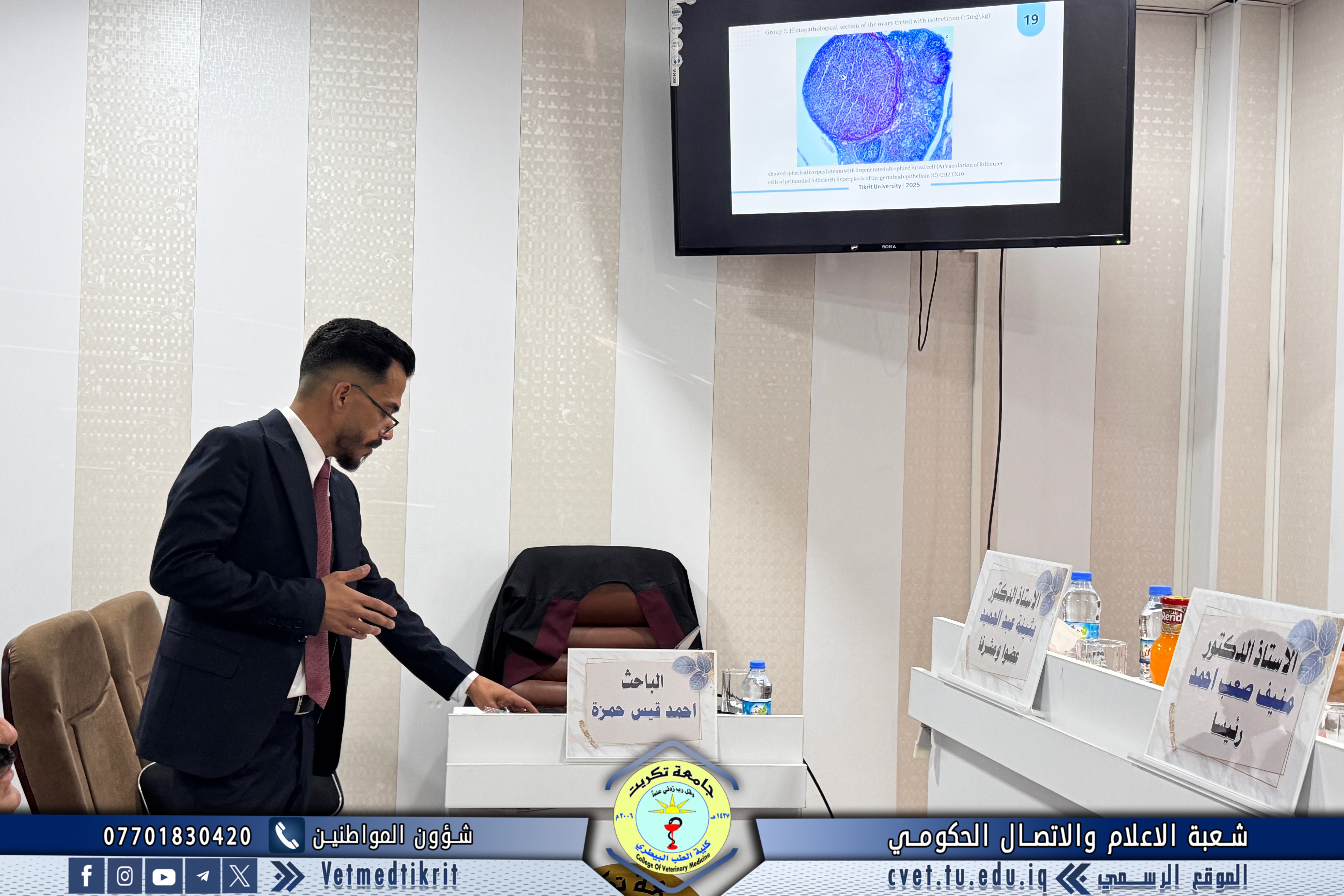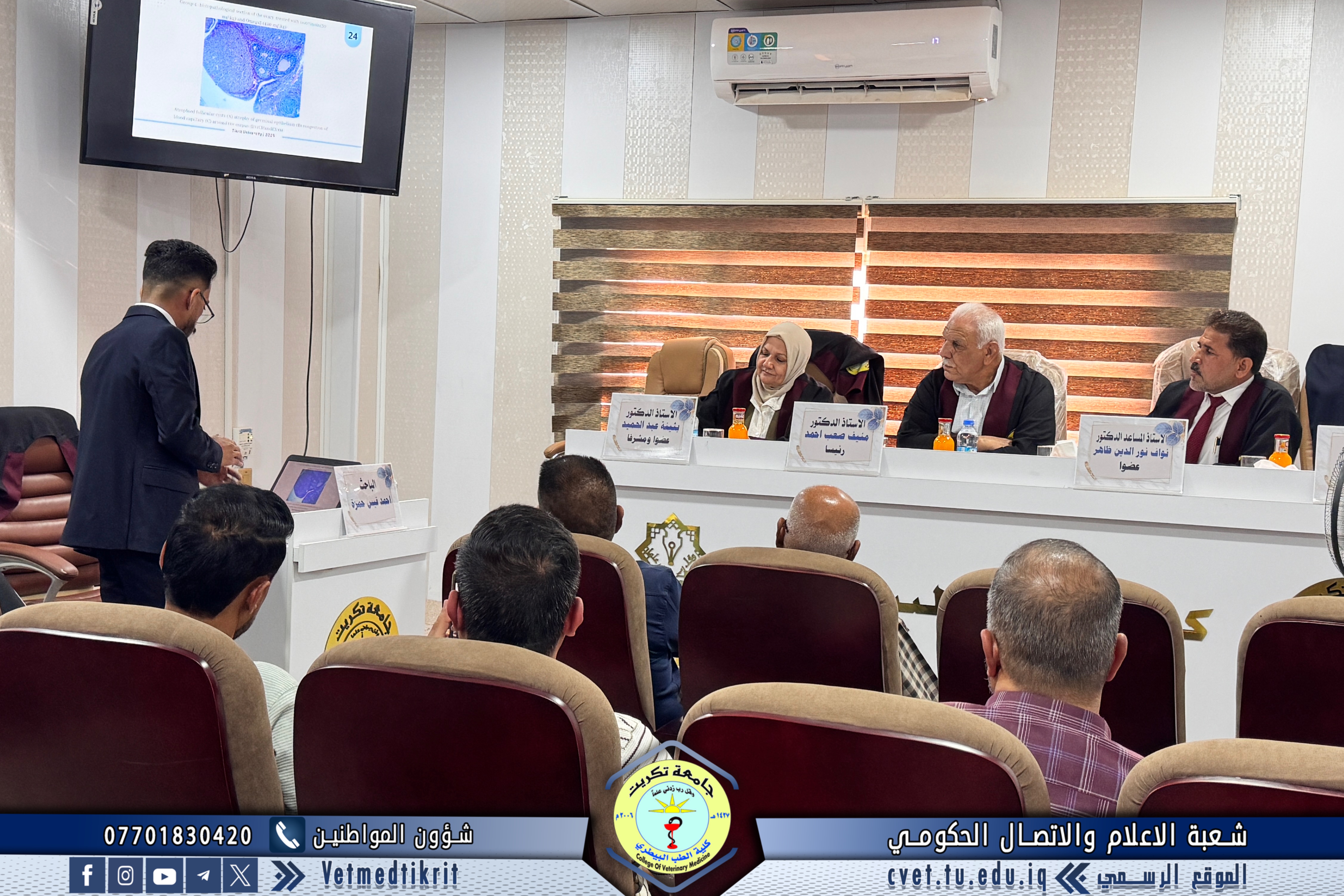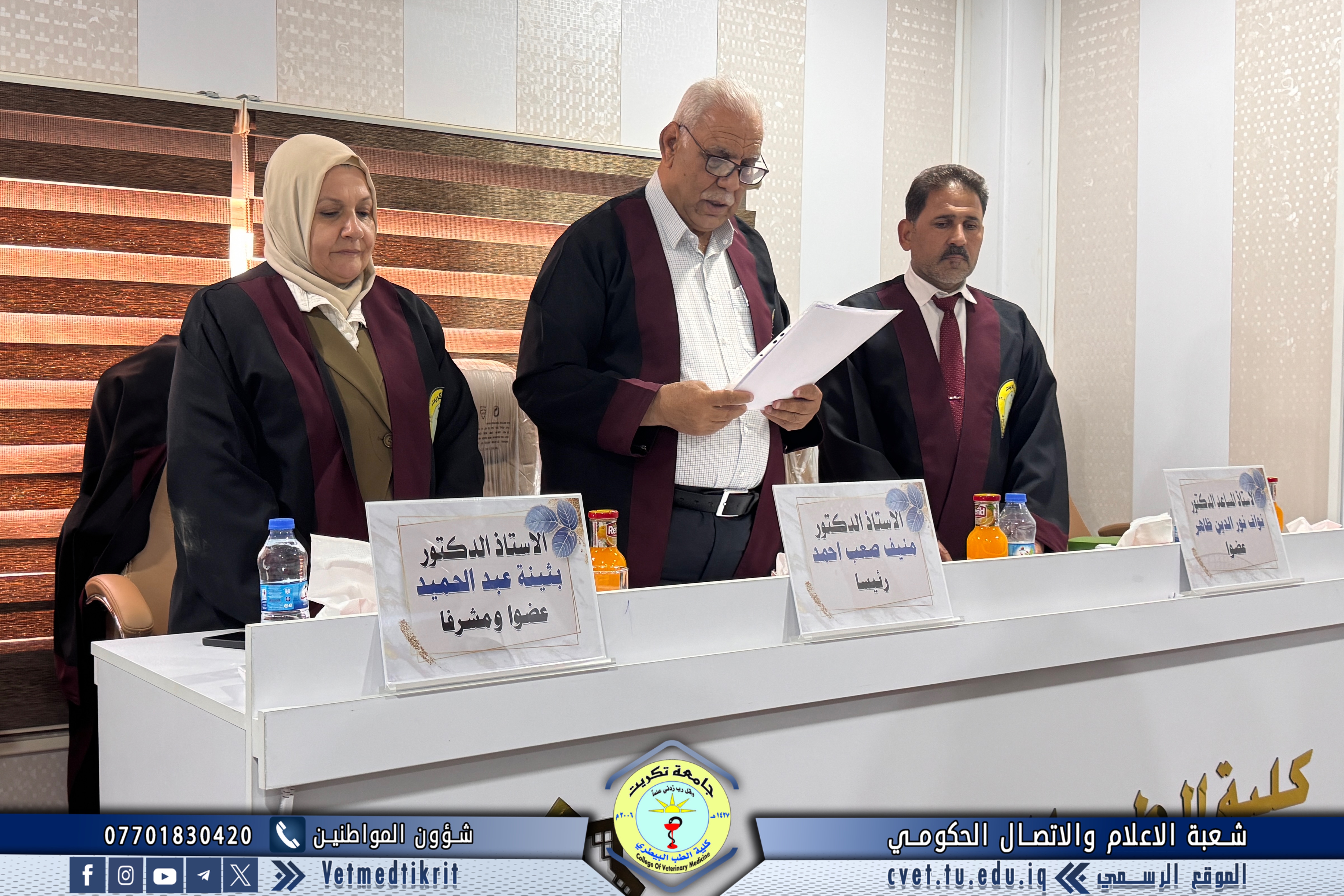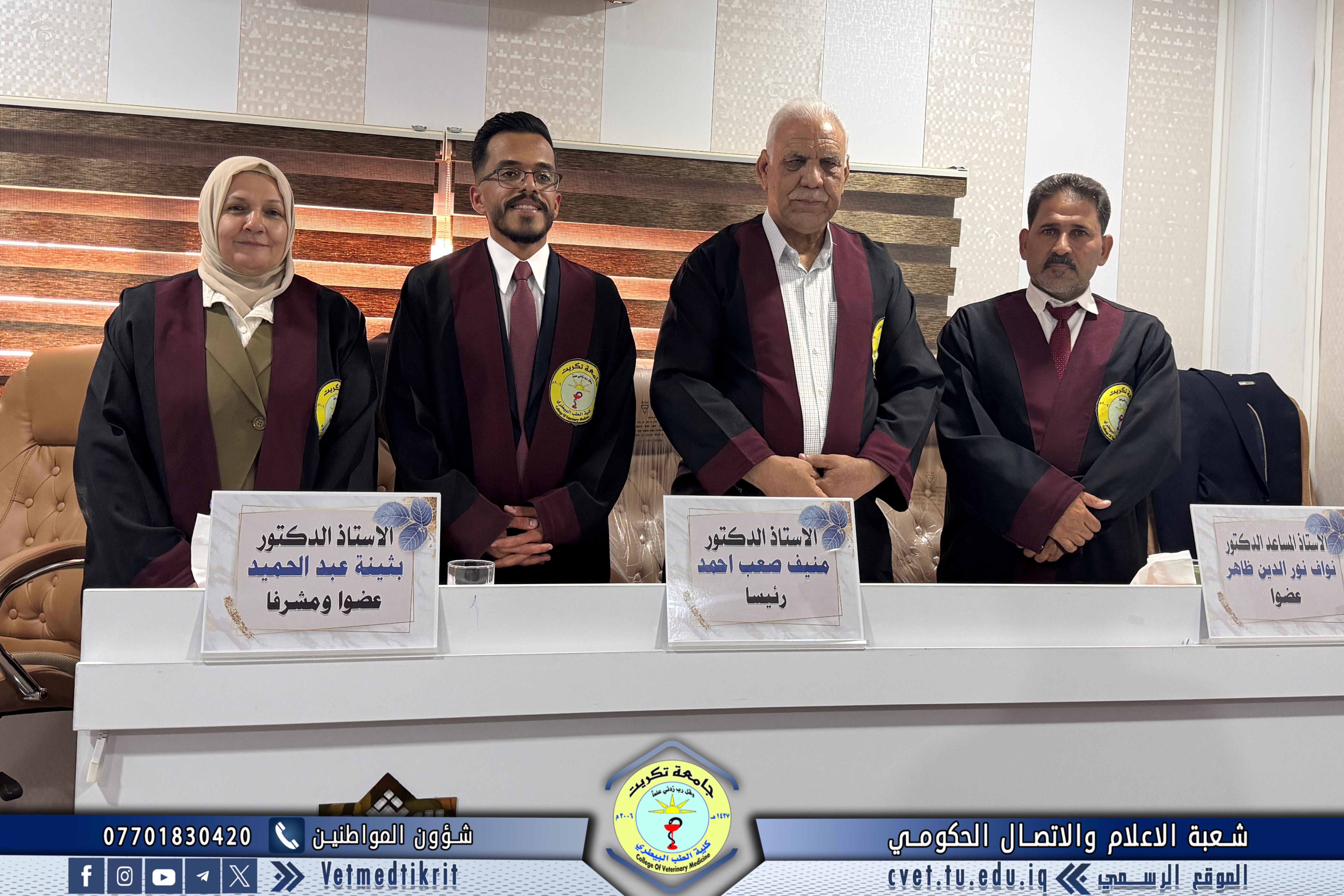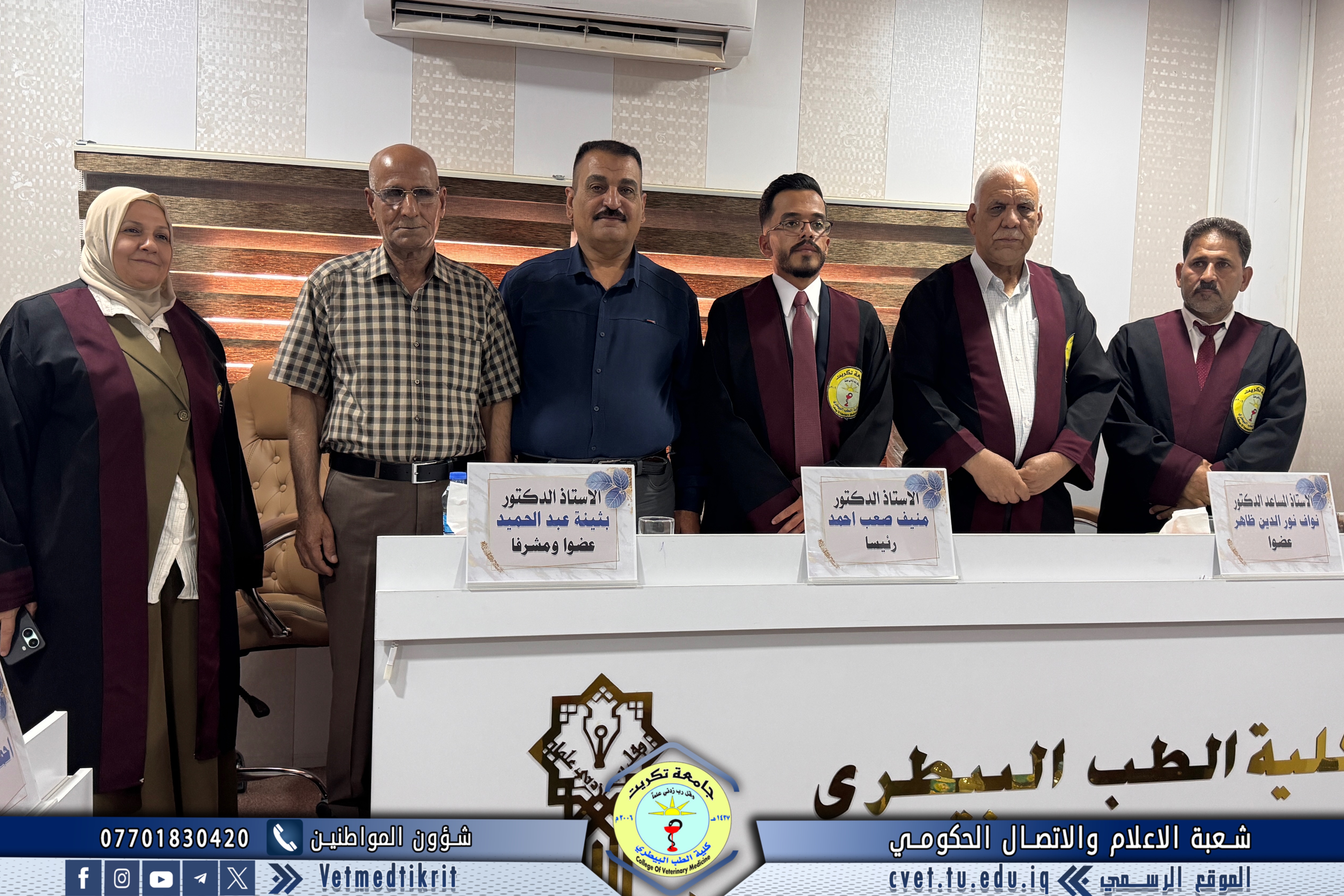With the grace of Almighty God, the College of Veterinary Medicine at the University of Tikrit held the defense of the Master’s thesis entitled “The Effect of Ginseng Herb Against Ibuprofen-Induced Reproductive Dysfunction in Male Rats”, presented by Shilan Abdulsalam Hamad, majoring in Veterinary Medical Pharmacology. The defense was attended by Prof. Dr. Bashar Sadiq Noami, Dean of the College.
The examining committee consisted of the following members:
Prof. Dr. Buthaina Abdulhameed Abdullah / Veterinary Pharmacology / University of Tikrit – College of Veterinary Medicine / Chair
Asst. Prof. Dr. Muhannad Yasser Rudeef / Clinical Pharmacy / University of Tikrit – College of Pharmacy / Member
Asst. Prof. Dr. Mohammed Musleh Shweish / Pharmacology and Toxicology / University of Anbar – College of Pharmacy / Member
Prof. Dr. Siham Ajmi Wadi / Veterinary Pharmacology / University of Tikrit – College of Veterinary Medicine / Member and Supervisor
Prof. Dr. Wasan Sarhan Ubaid / Animal Physiology / University of Tikrit – College of Veterinary Medicine / Member and Supervisor
Abstract of the Thesis
The therapeutic benefits of Panax ginseng have attracted significant scientific attention. Therefore, this study aimed to investigate the effect of alcoholic ginseng extract against ibuprofen-induced reproductive dysfunction in male rats.
The experiment was conducted from August 24 to September 26, 2024, at the Animal House of the College of Veterinary Medicine, University of Tikrit. A total of 70 adult male rats were obtained and divided into seven groups, each containing ten rats. The treatments were administered orally as follows:
Control Group: Received normal saline daily.
DMSO Group: Received dimethyl sulfoxide (DMSO) for 30 days.
Ibuprofen (10 days): 120 mg/kg body weight for 10 days.
Ibuprofen (30 days): 120 mg/kg body weight for 30 days.
Ginseng Group: Alcoholic ginseng extract 20 mg/kg for 30 days.
Ibuprofen (10 days) → Ginseng (20 days): Ibuprofen 120 mg/kg for 10 days, followed by ginseng extract 20 mg/kg for 20 days.
Combined Treatment: Ibuprofen 120 mg/kg + ginseng extract 20 mg/kg together for 30 days.
Results Summary
Significant differences (P≤0.05) were observed in cholesterol, triglycerides, low-density lipoprotein (LDL), and high-density lipoprotein (HDL) concentrations, with the highest levels found in the group treated with ibuprofen for 30 days compared to the control. Treated groups showed non-significant differences compared to the untreated group, while the ginseng group showed a significant decrease in cholesterol (P≤0.05).
Liver enzyme activity—including AST, ALT, and ALP—showed significant differences (P≤0.05) in the 30-day ibuprofen group compared to the control, while the treated and ginseng groups also showed significant (P≤0.05) differences from the untreated group.
Blood levels of Coenzyme Q10, carnitine, and urea in the 10-day ibuprofen group were significantly higher (P≤0.05) than in the control, while treated and ginseng groups showed non-significant differences. Regarding oxidative stress markers, MDA and SOD levels in the 30-day ibuprofen group showed significant differences (P≤0.05) compared to controls. Treated and ginseng groups also showed significant (P≤0.05) differences, indicating antioxidant effects.
Hormone analysis showed normal testosterone and FSH levels across all groups, with no significant differences. However, LH levels were significantly higher (P≤0.05) in the 30-day ibuprofen group compared to controls, while treated groups showed no significant differences.
Regarding sperm characteristics, ibuprofen-treated groups (10 and 30 days) exhibited significant (P≤0.05) decreases in sperm motility, live ratio, total count, and normal morphology compared to the control group. In contrast, the ginseng group showed non-significant differences, while treated groups (ibuprofen + ginseng) exhibited marked improvement in sperm motility and quality compared to ibuprofen-only groups.
Histological examination of the testes in the DMSO and ibuprofen (10- and 30-day) groups revealed degeneration of blood vessels, reduced sperm count, and seminiferous tubule damage. However, in the groups treated with ginseng—either after or alongside ibuprofen—seminiferous tubules showed normal spermatogenic stages, with improved spermatogenic cells, vitality, and sperm count.
Conclusion
The study concluded that prolonged use of ibuprofen causes adverse effects on the male reproductive system, particularly on sperm motility, viability, morphology, and count. Meanwhile, ginseng extract demonstrated a protective role by improving sperm quality, reducing ibuprofen-induced damage, enhancing testicular tissue structure, and mitigating cellular degeneration, necrosis, and inflammatory infiltration.
The defense took place at Dr. Muhannad Maher Hall in the College of Veterinary Medicine, attended by several faculty members and students.
